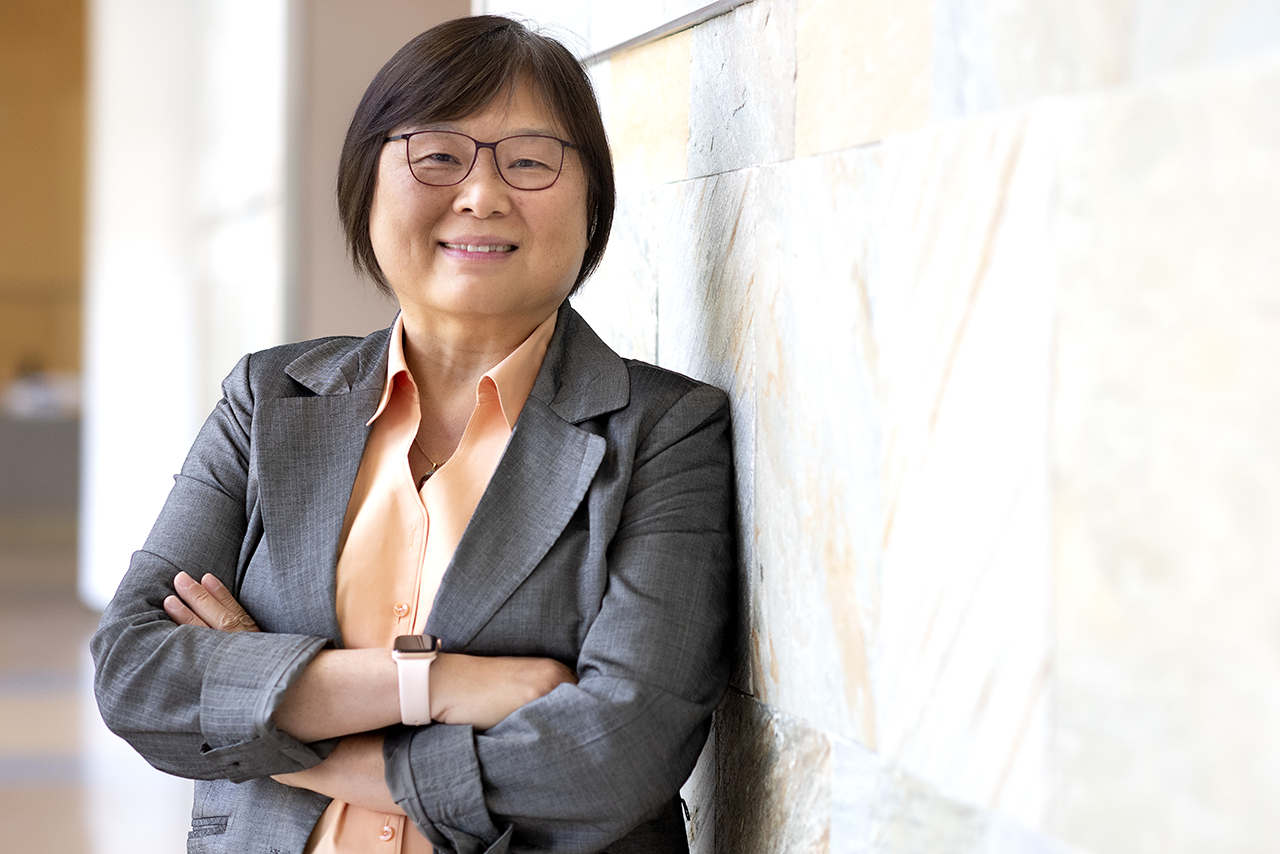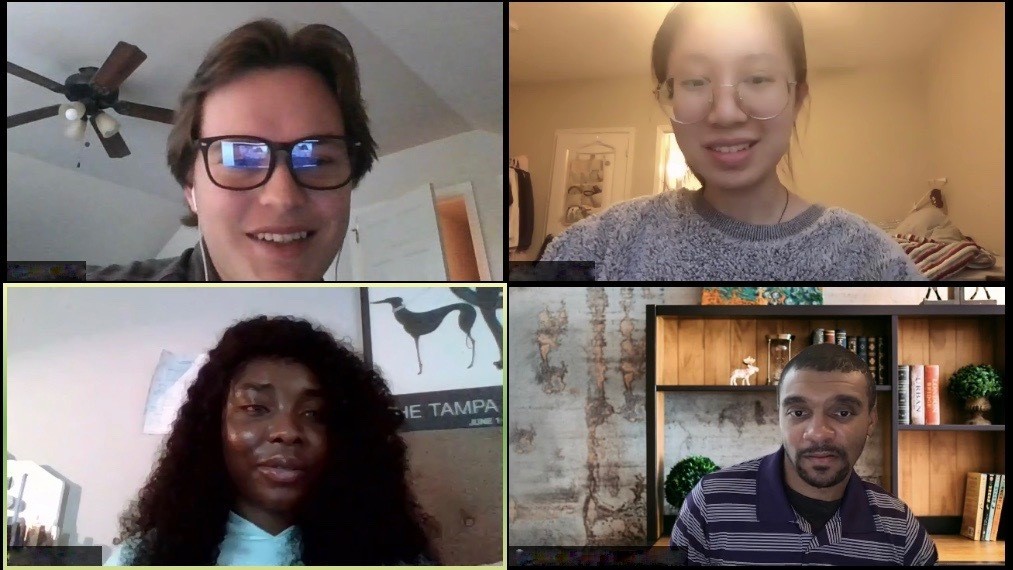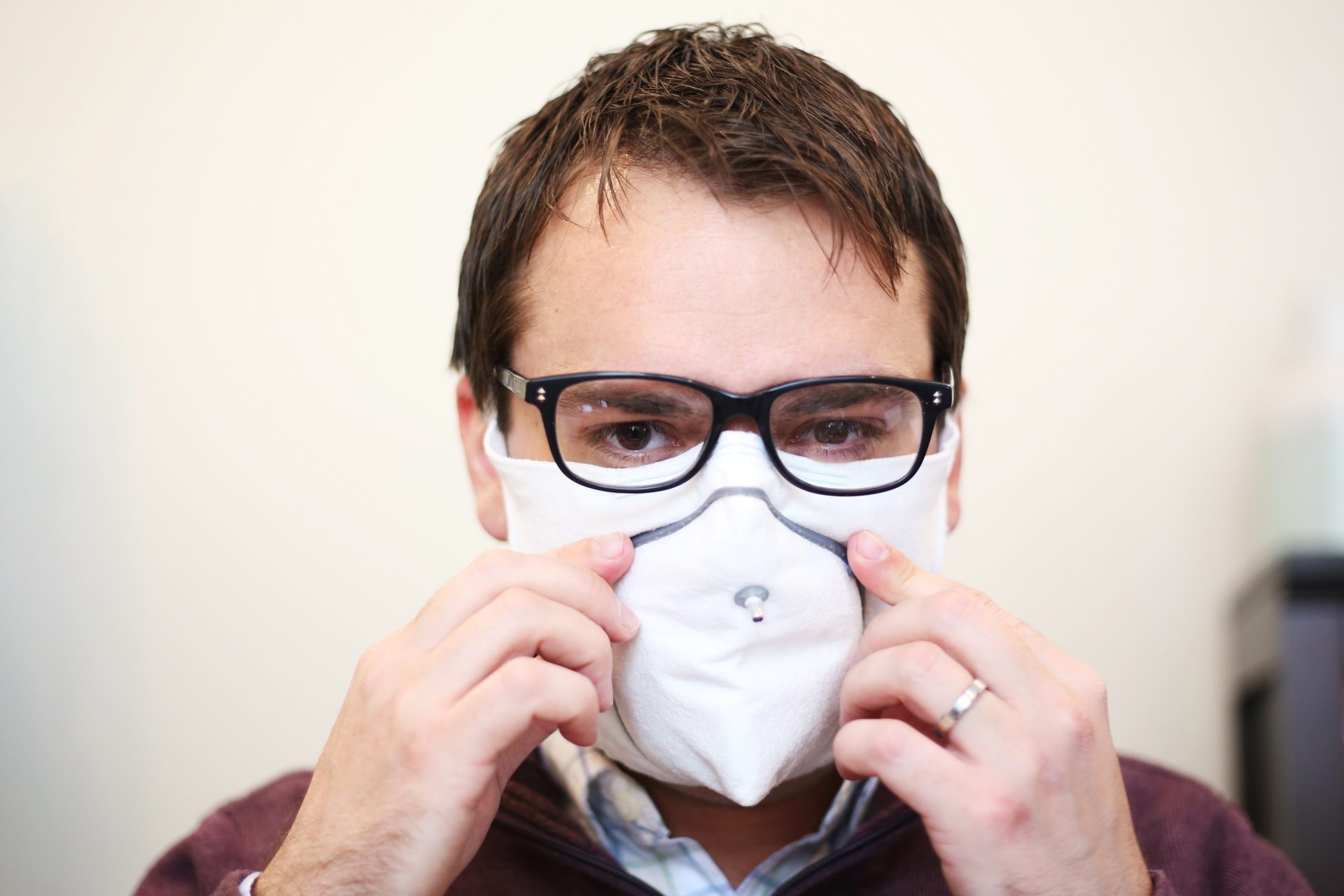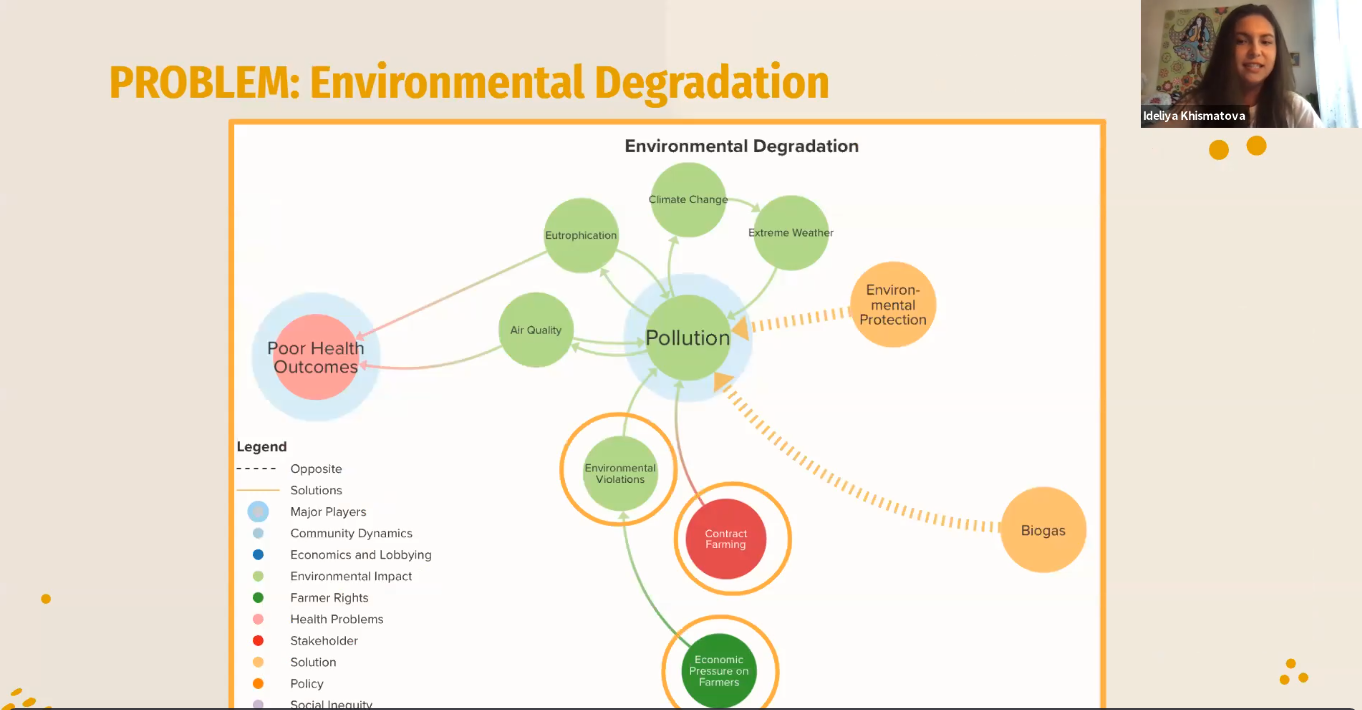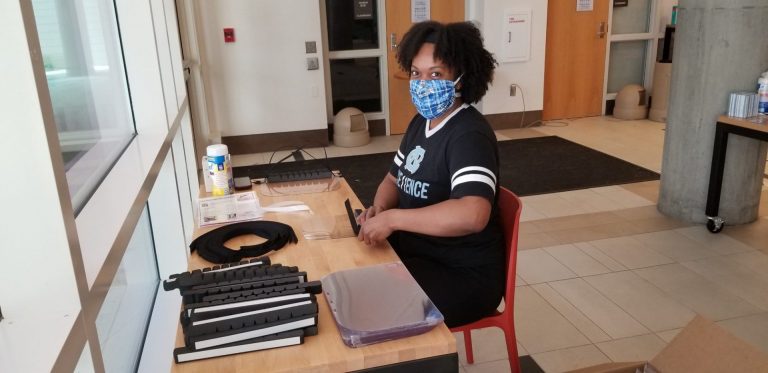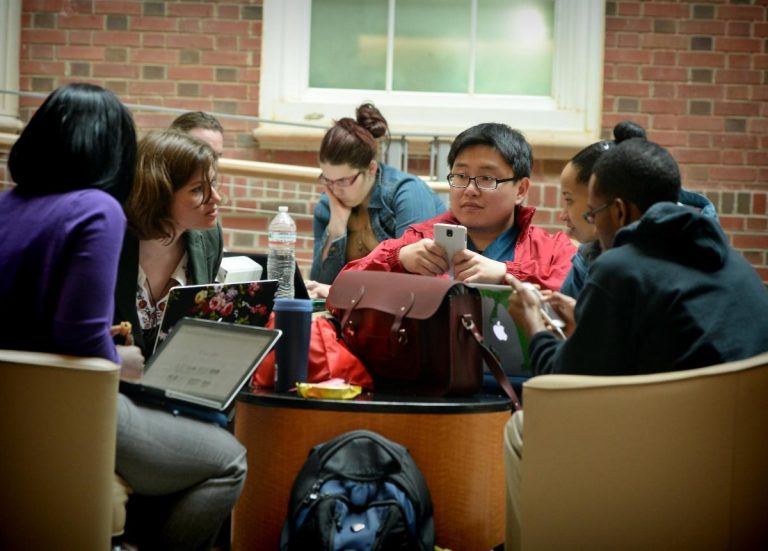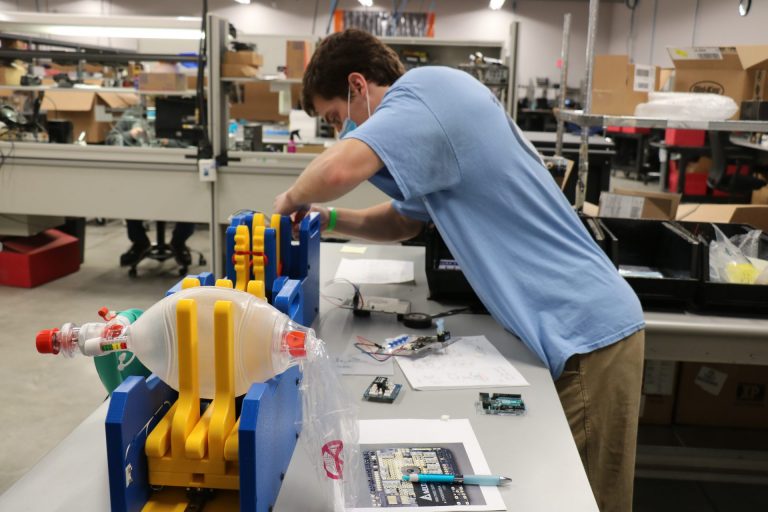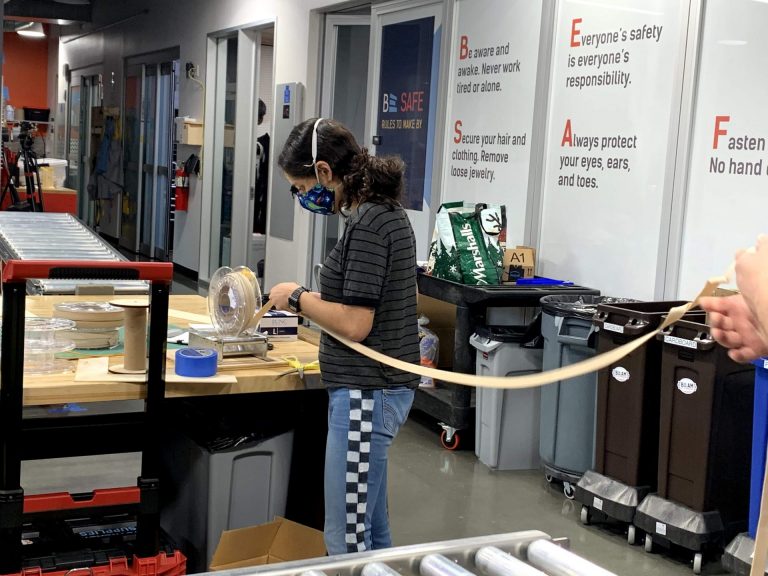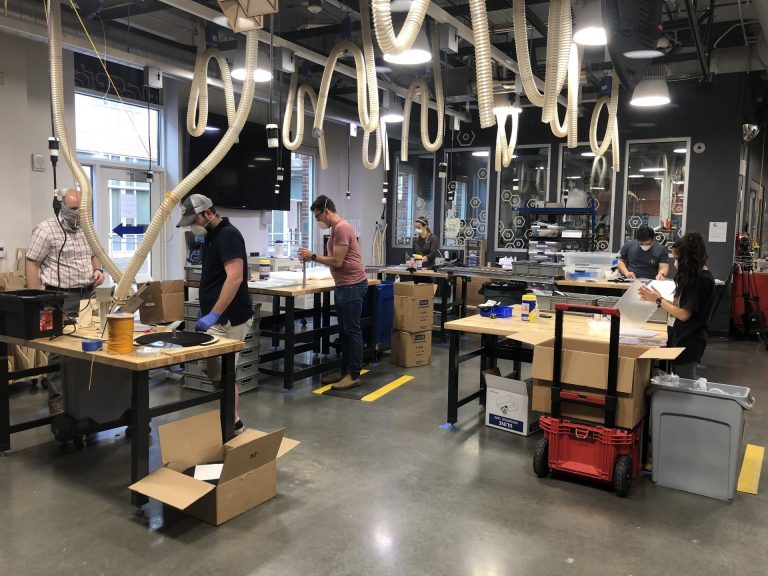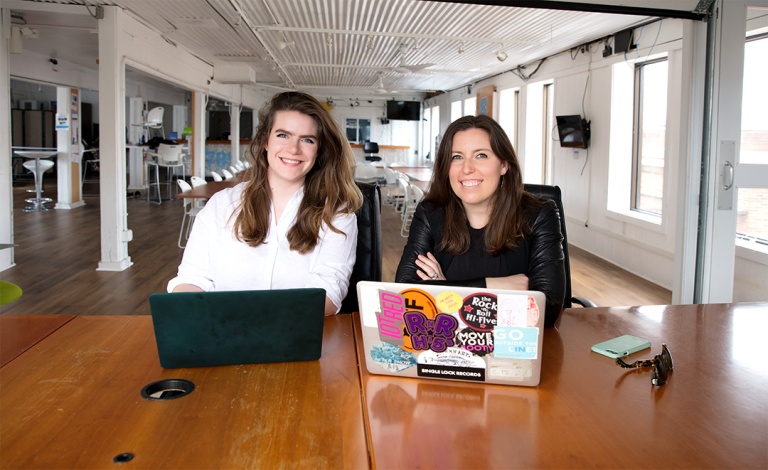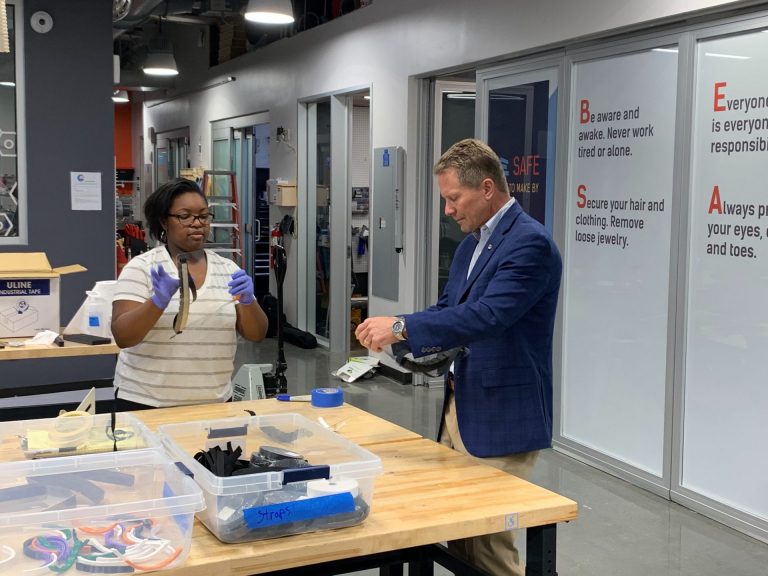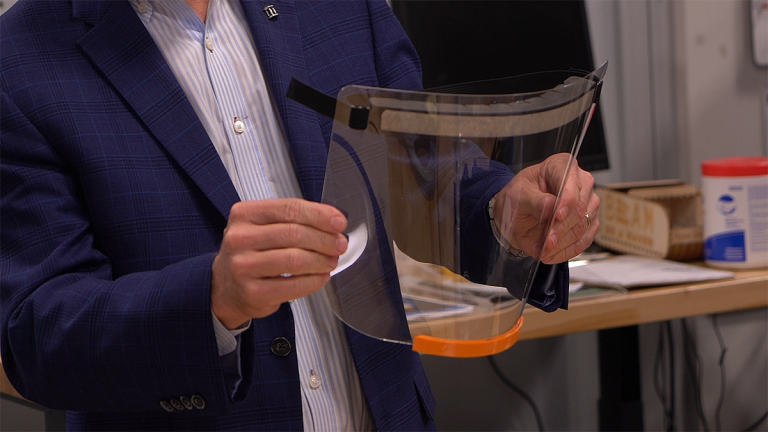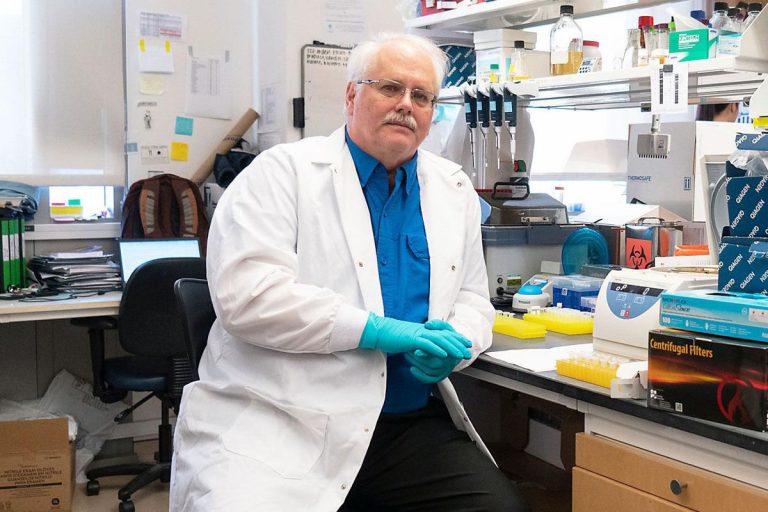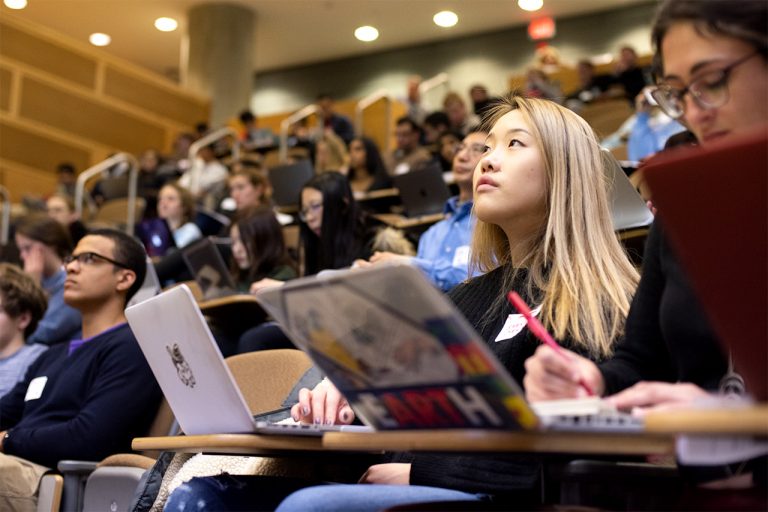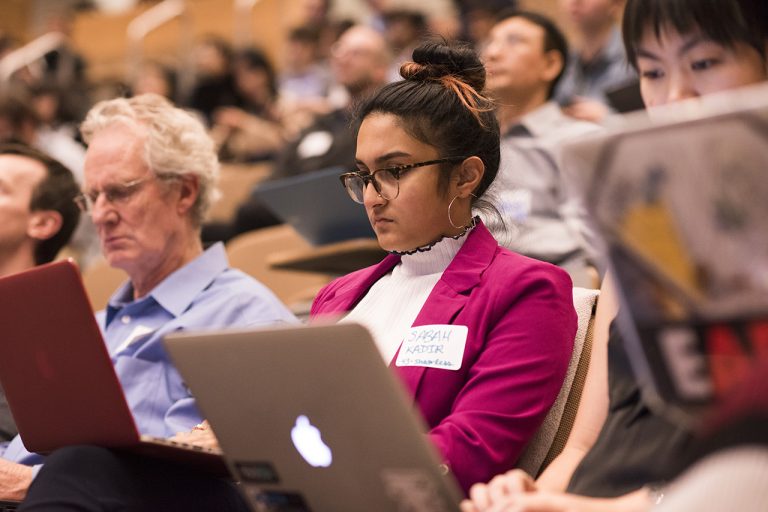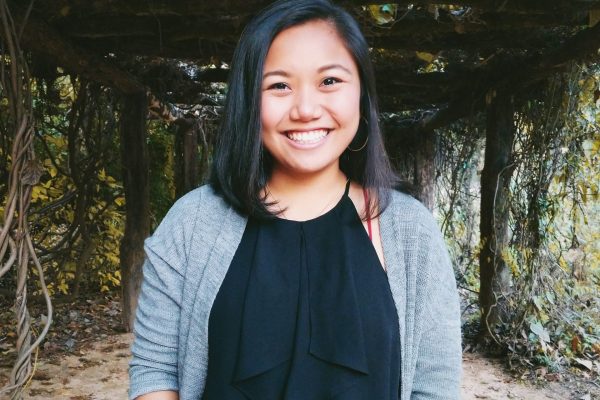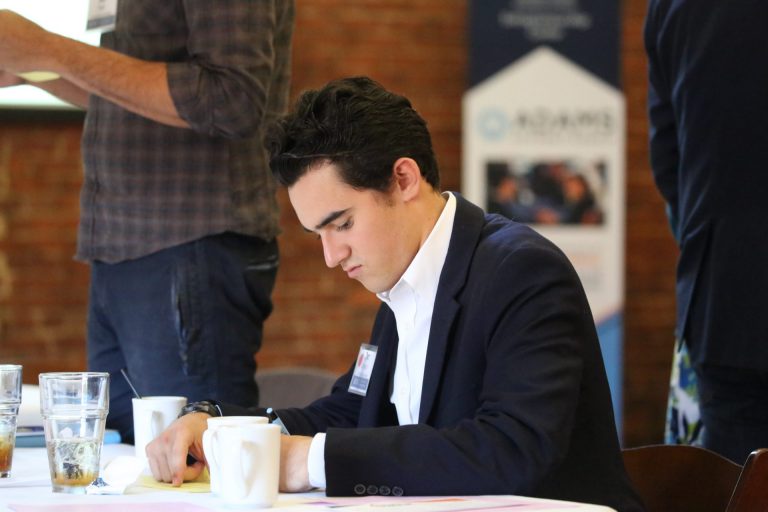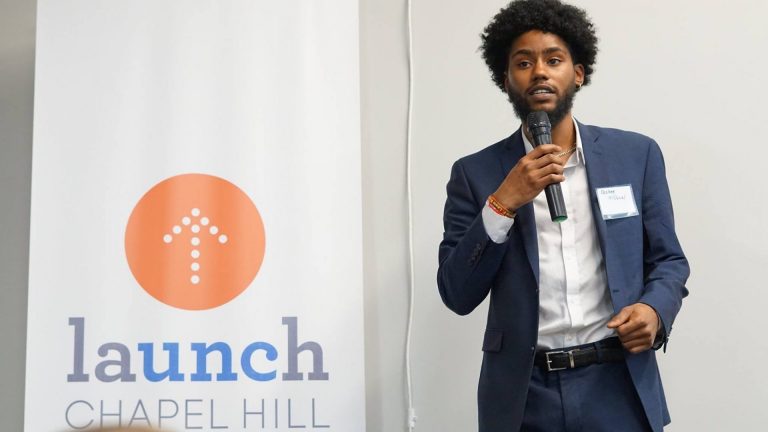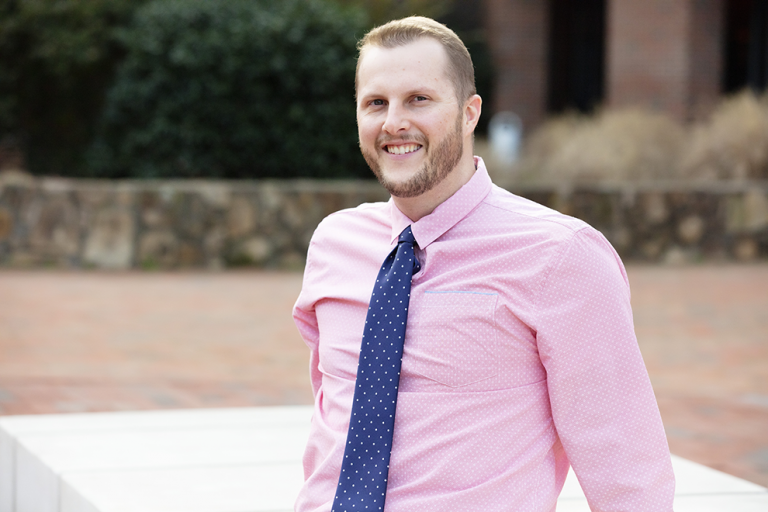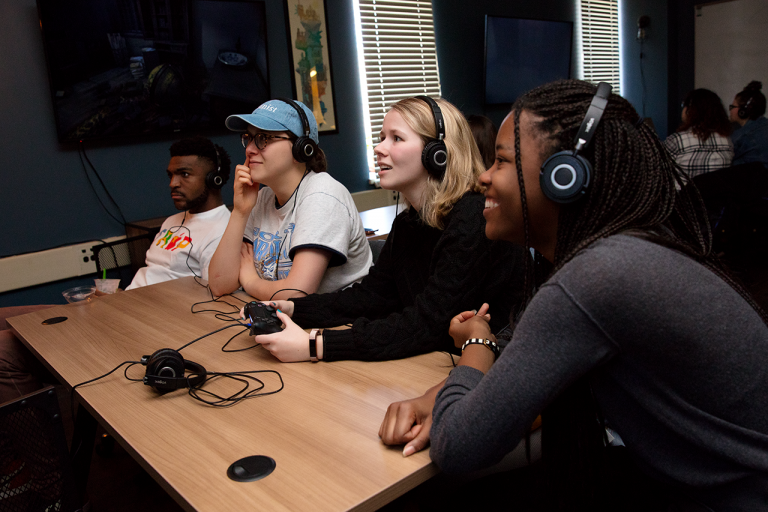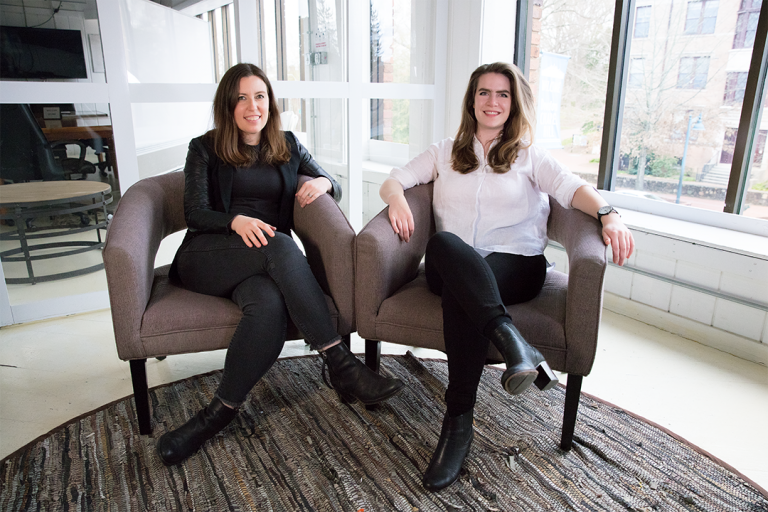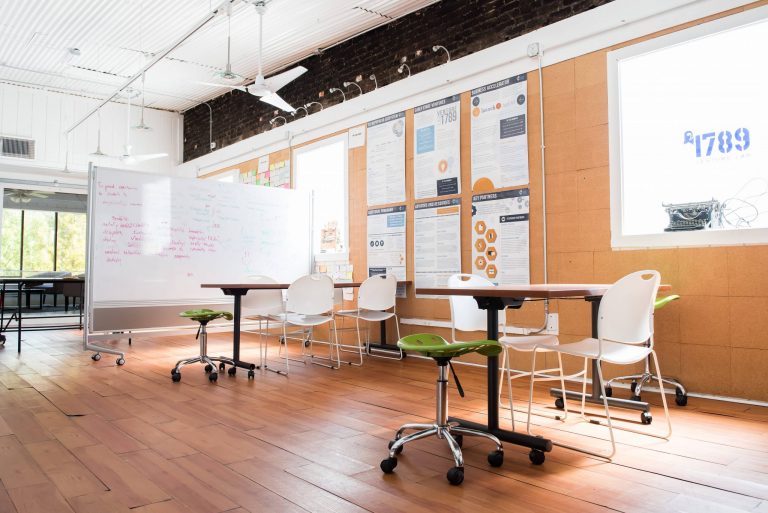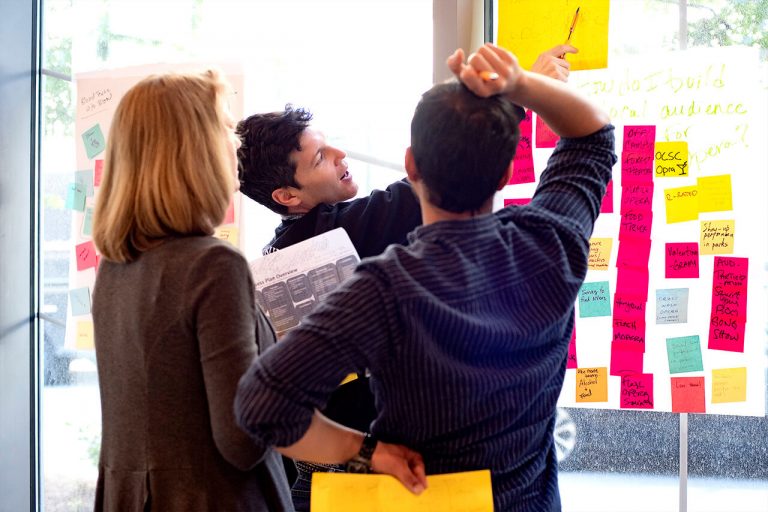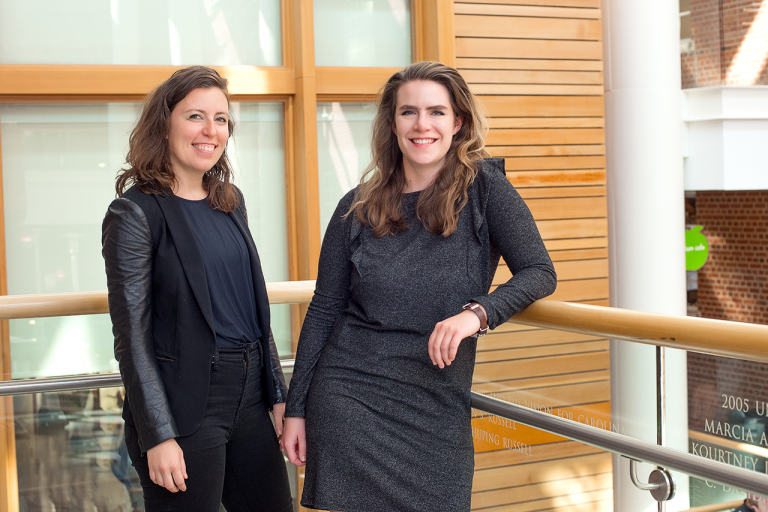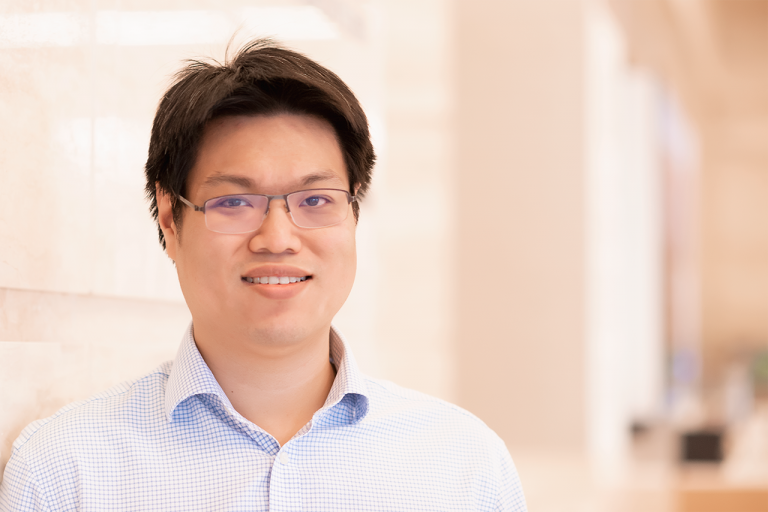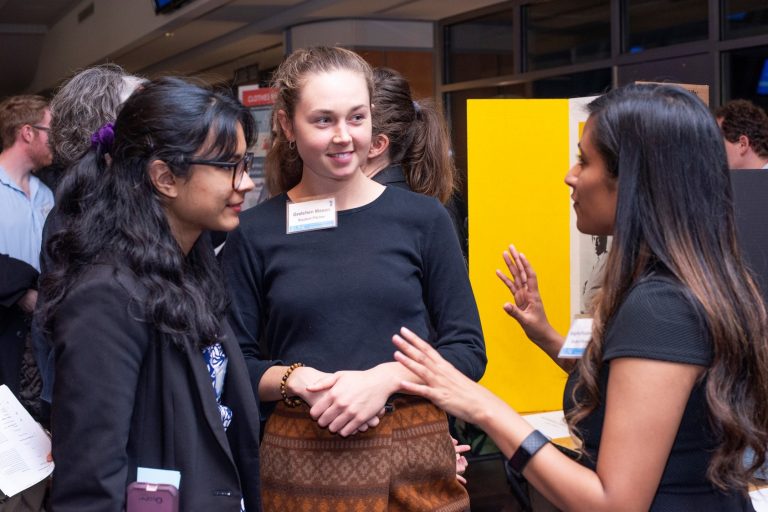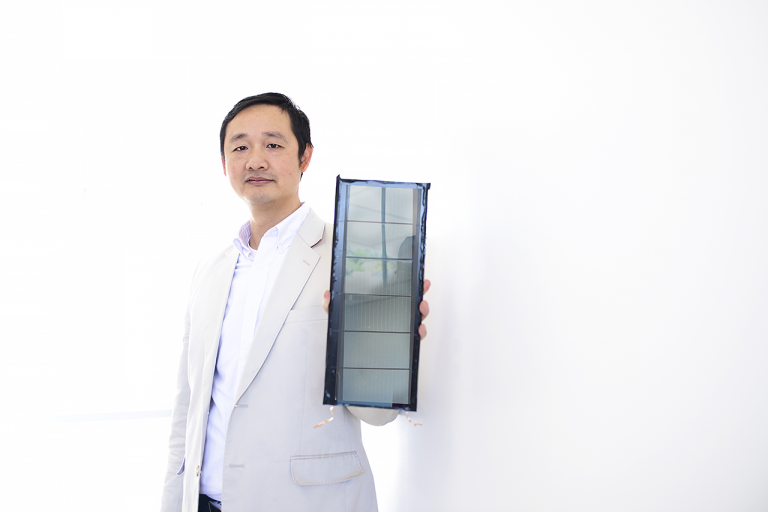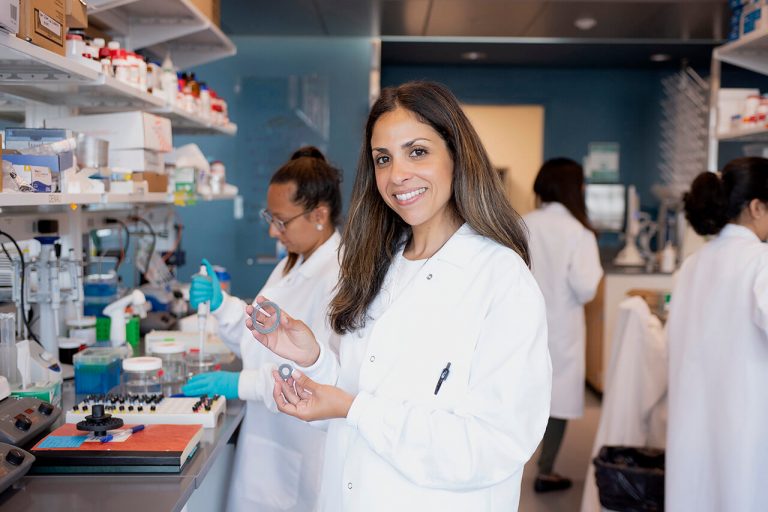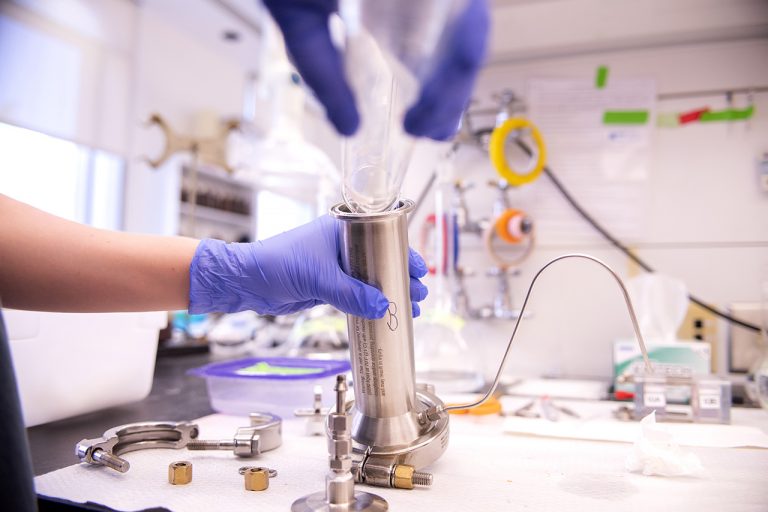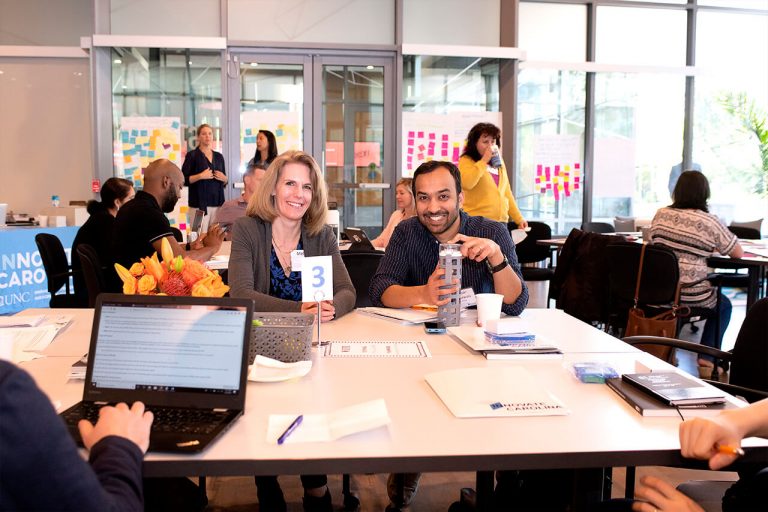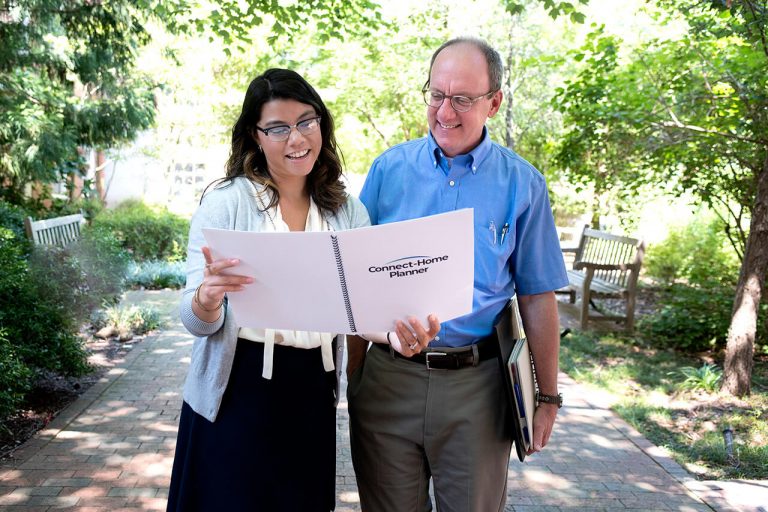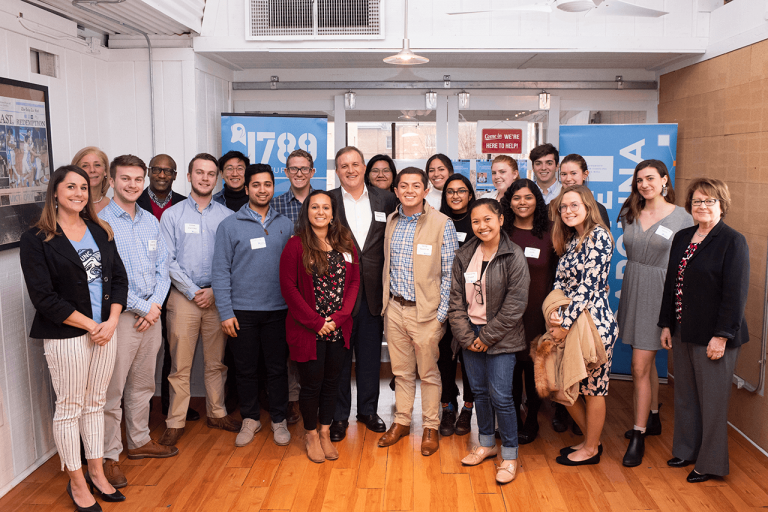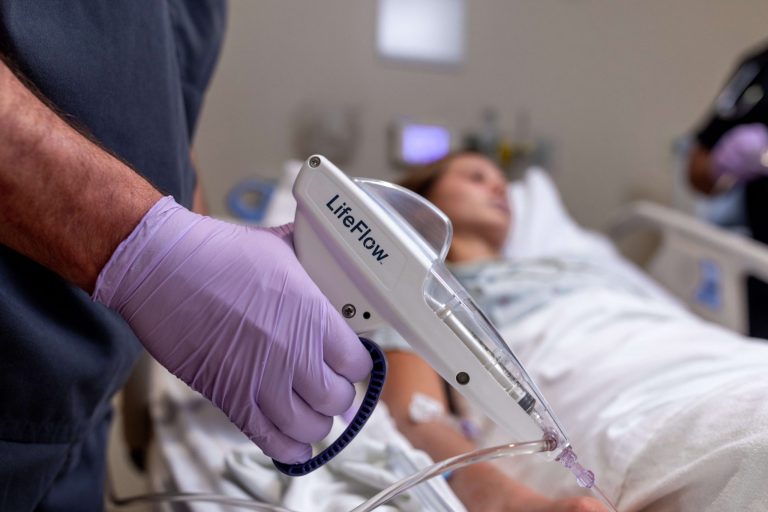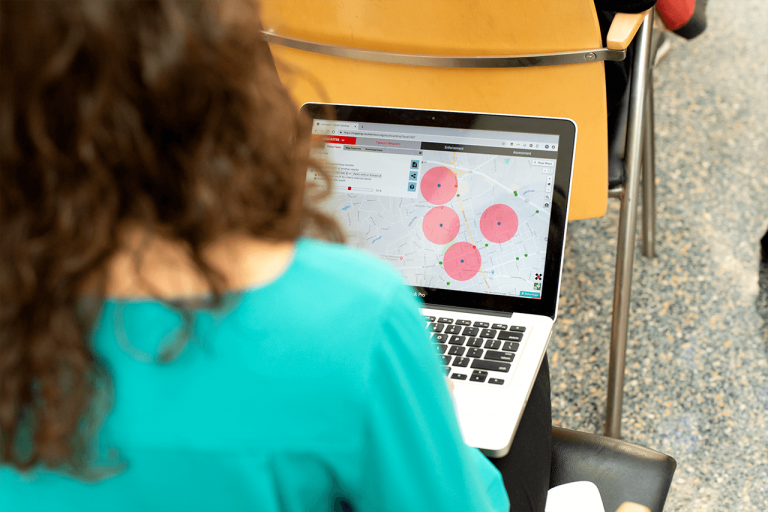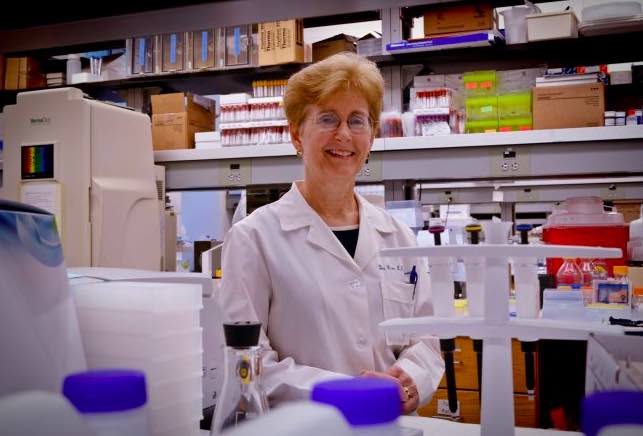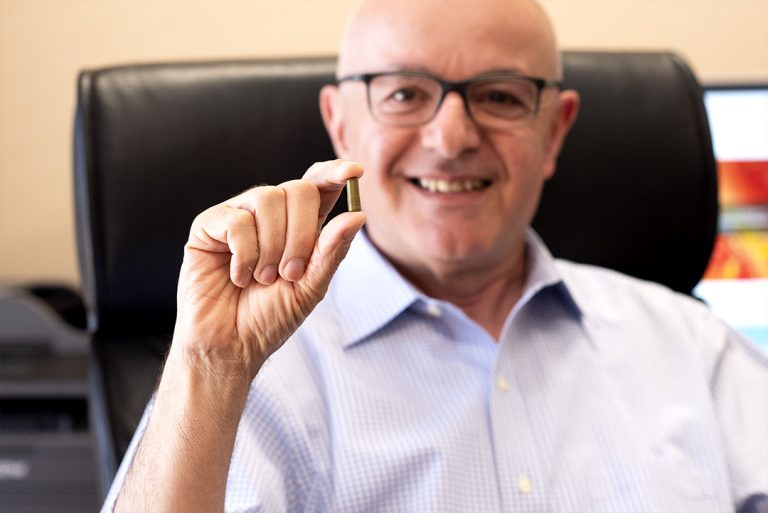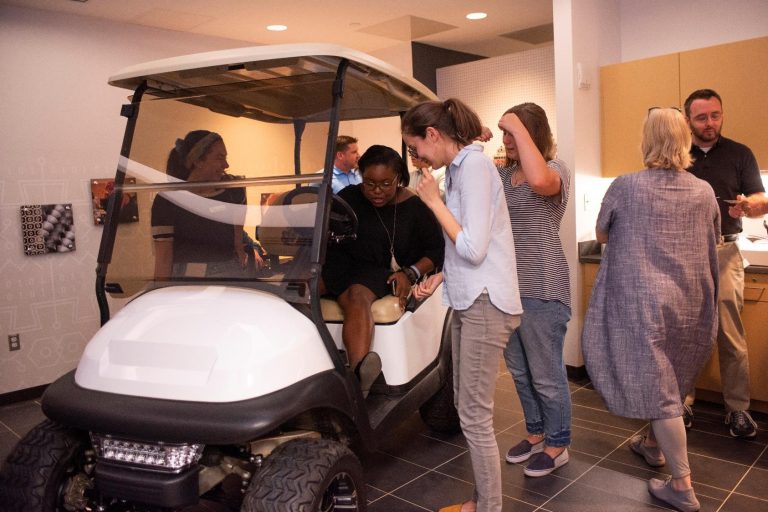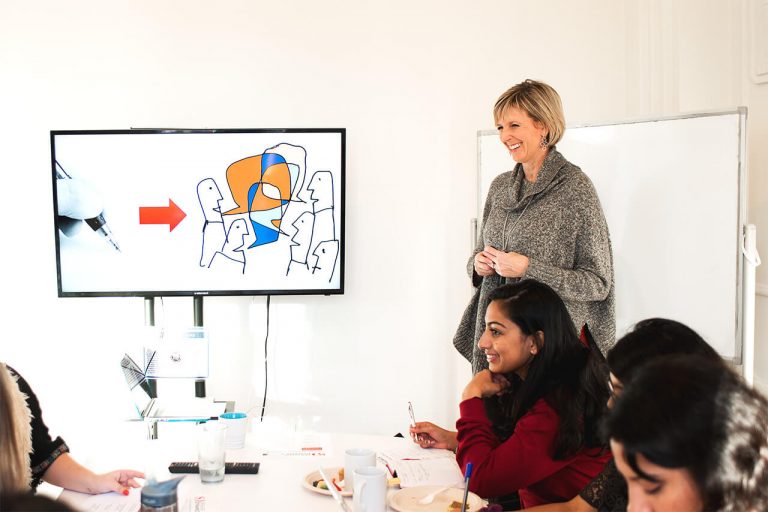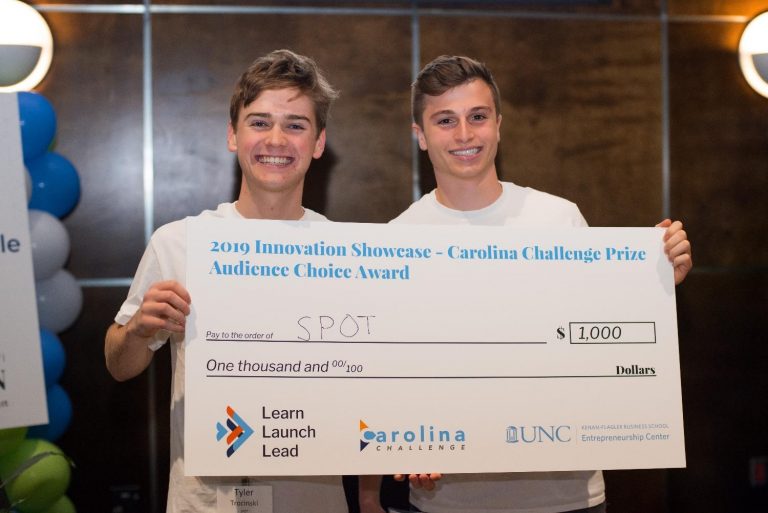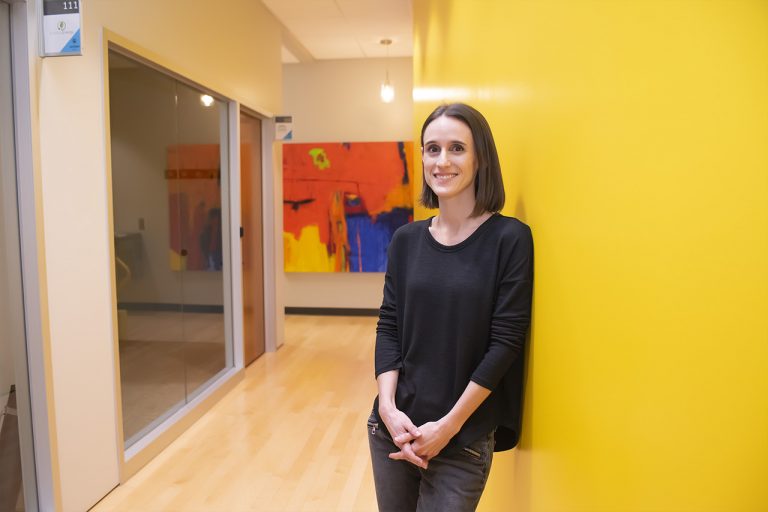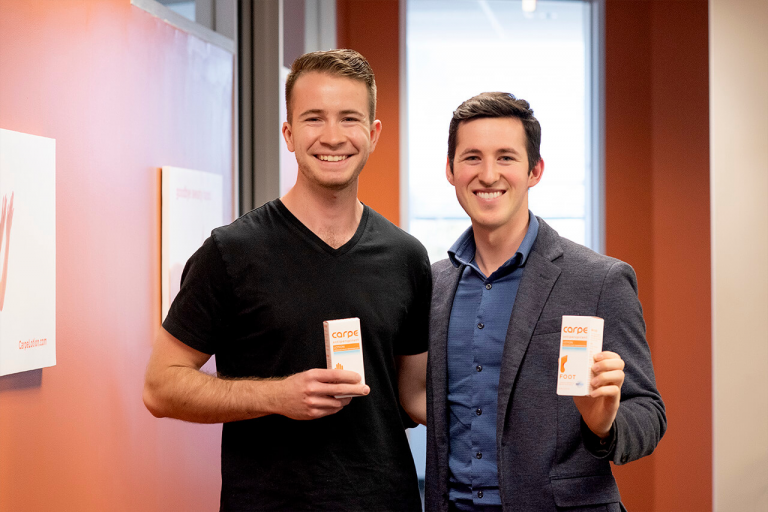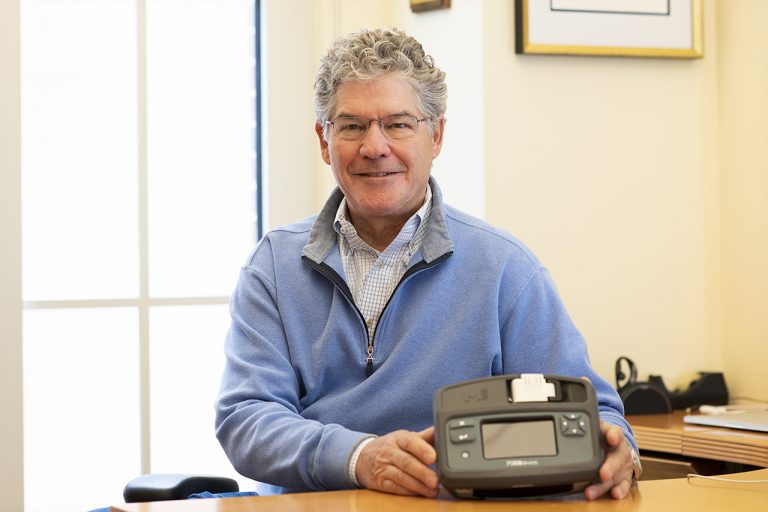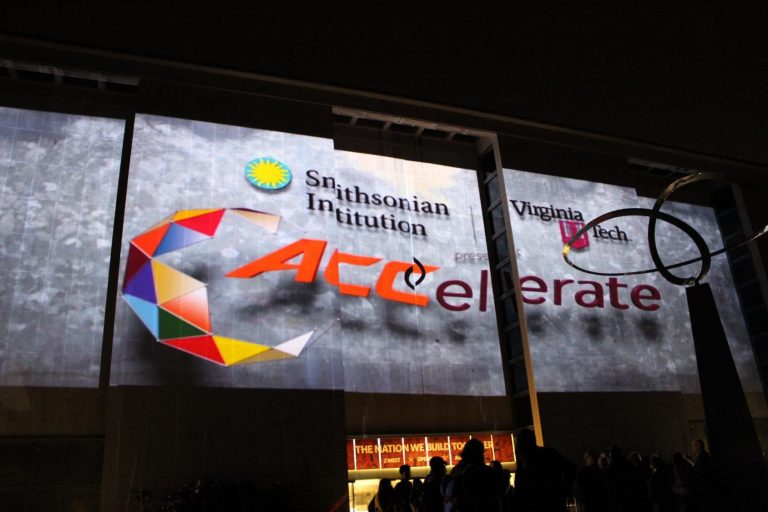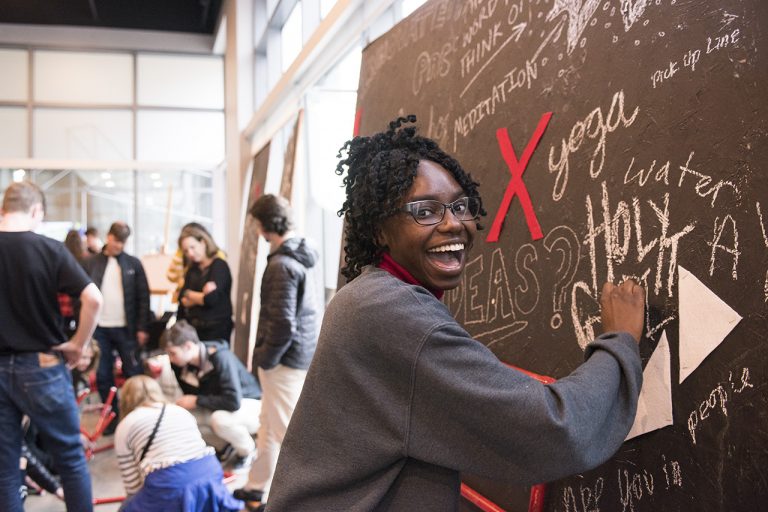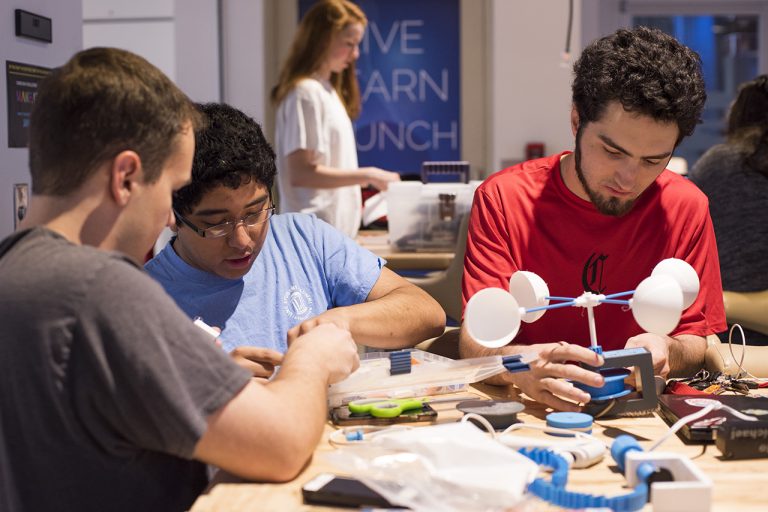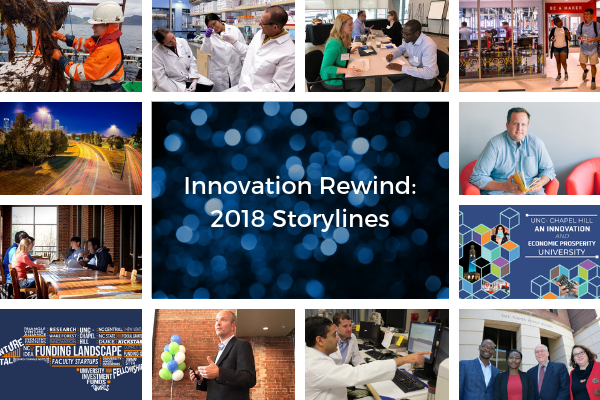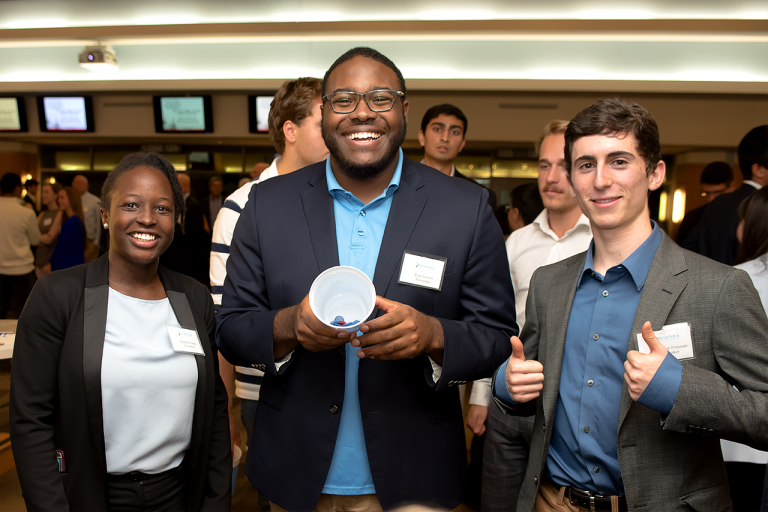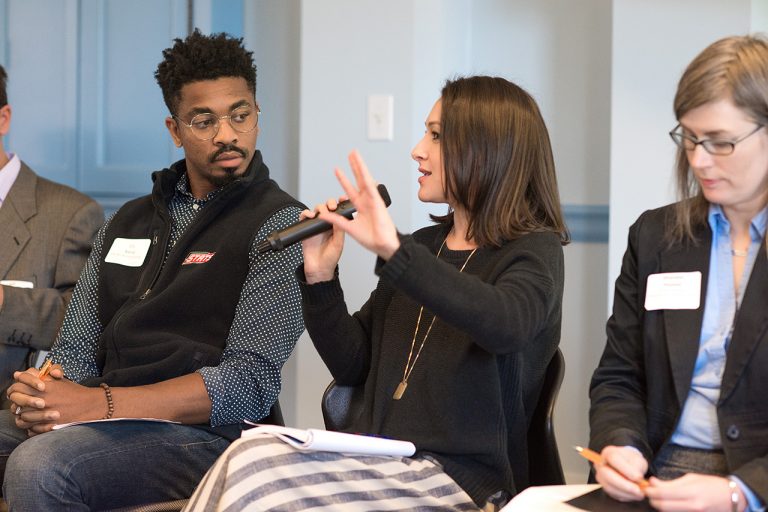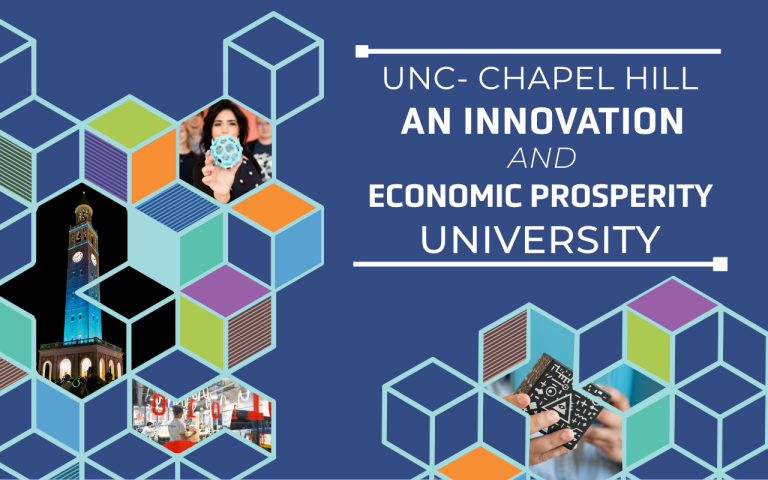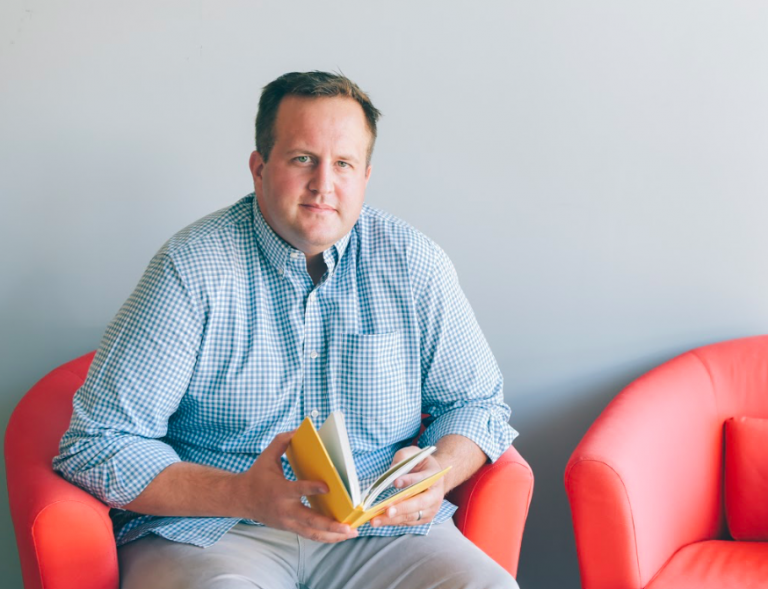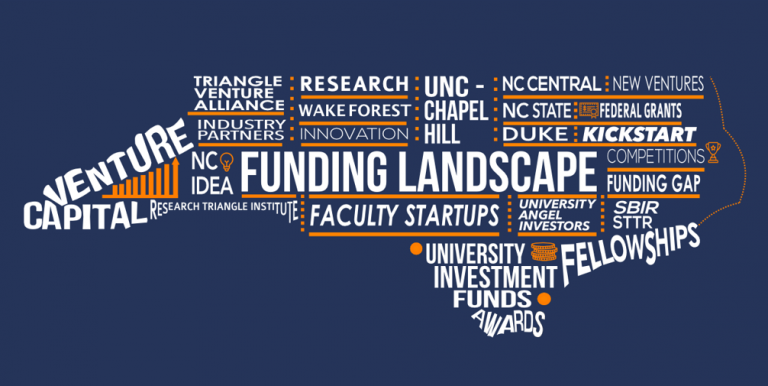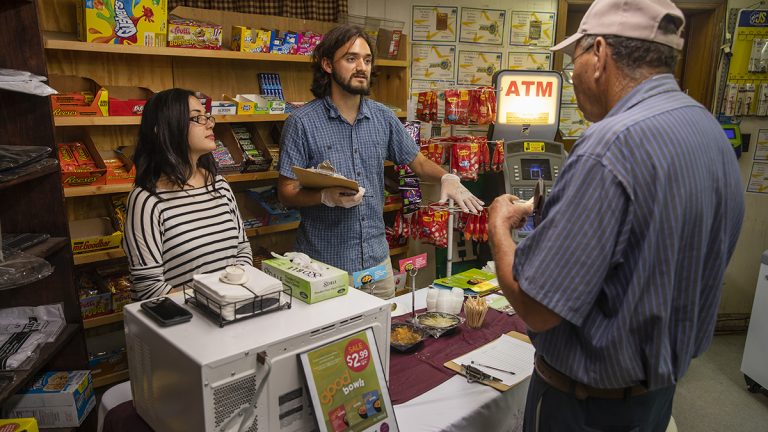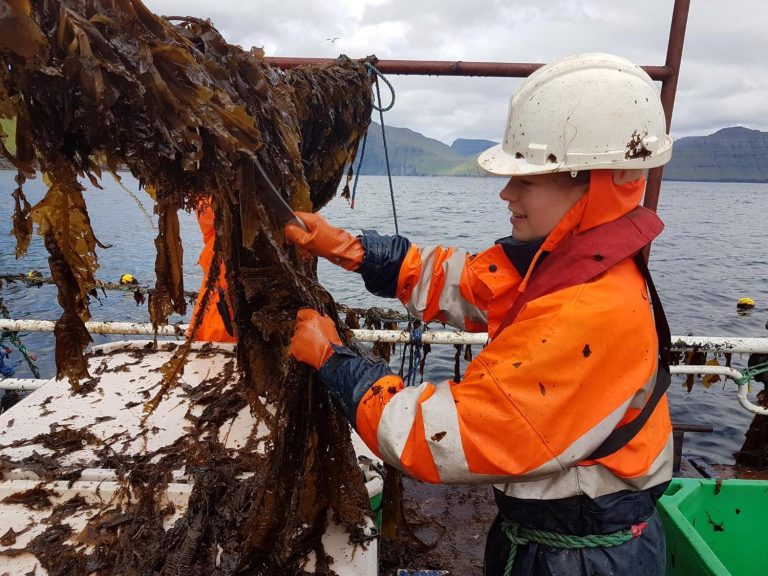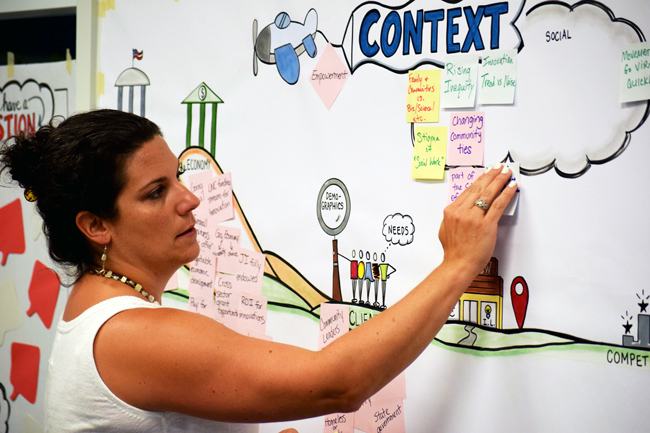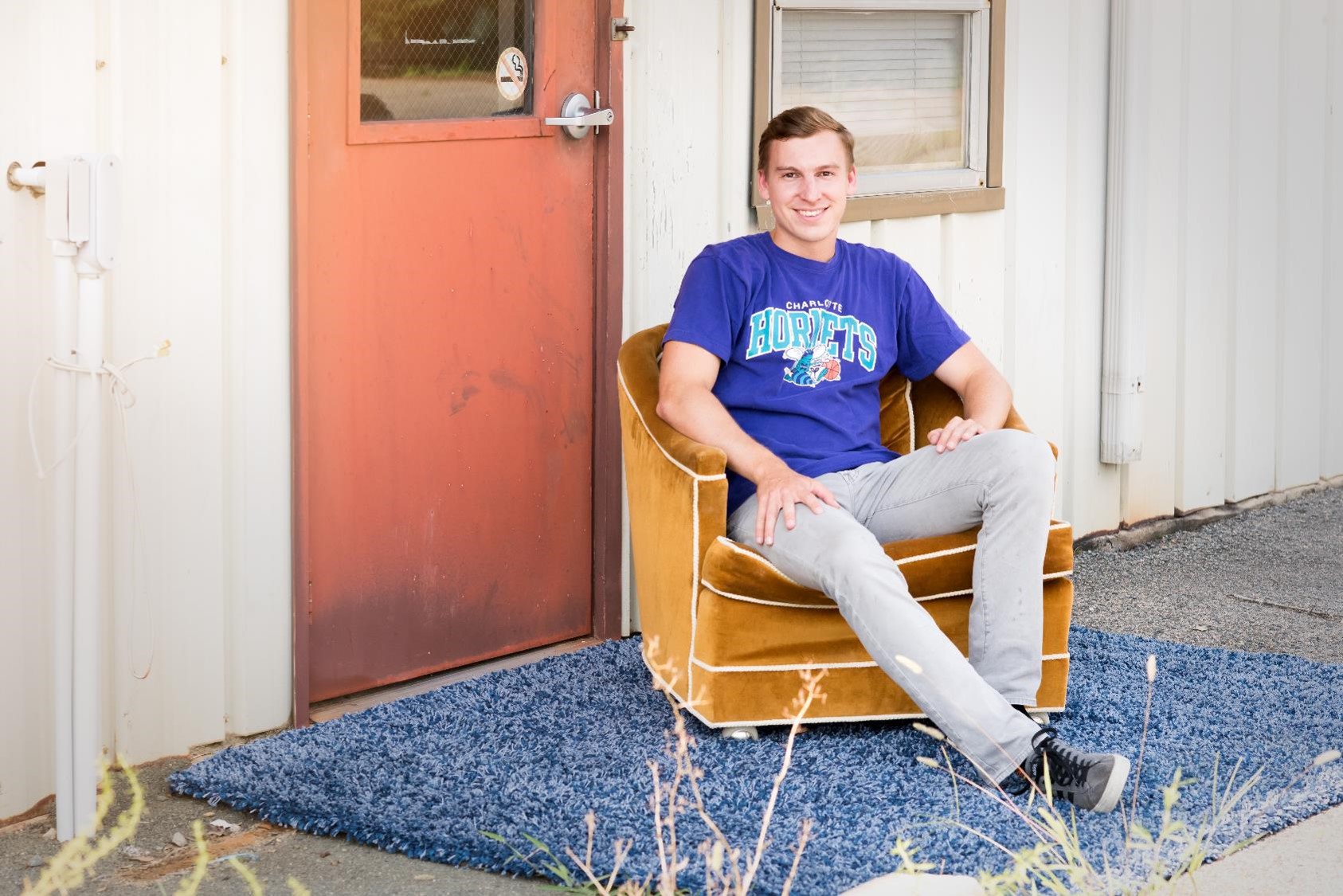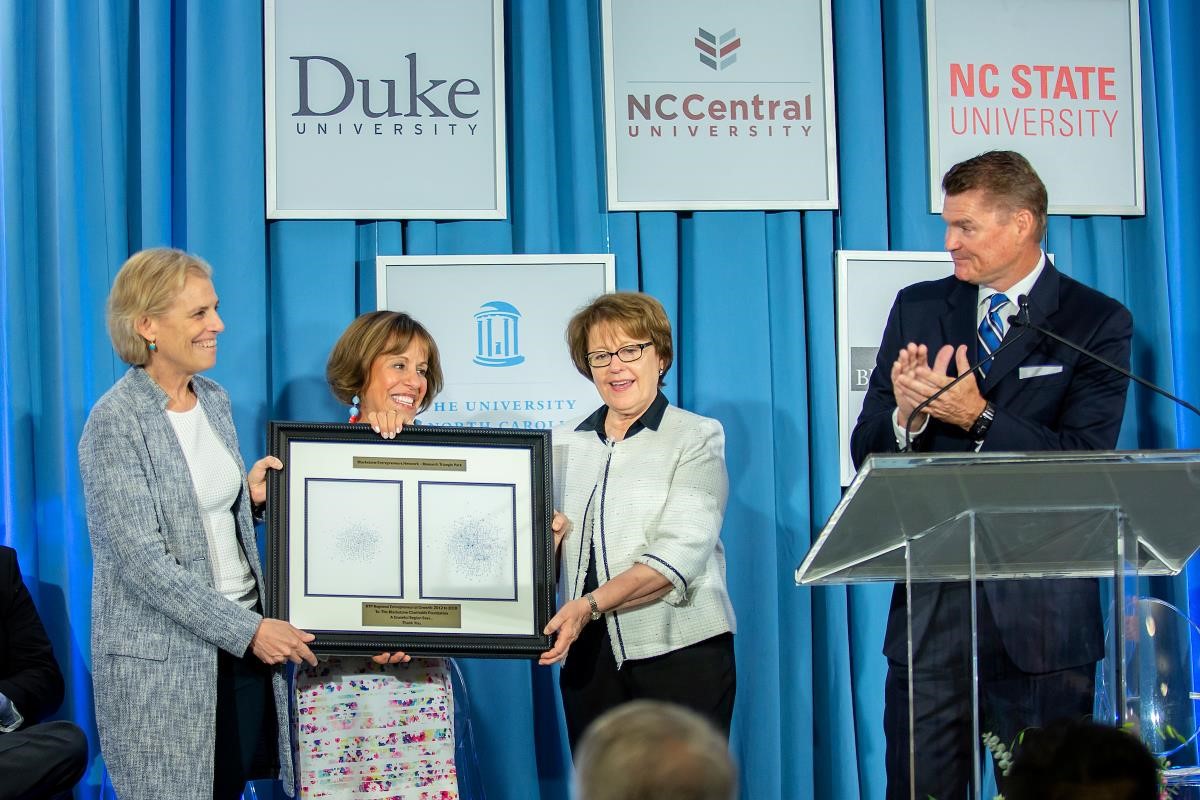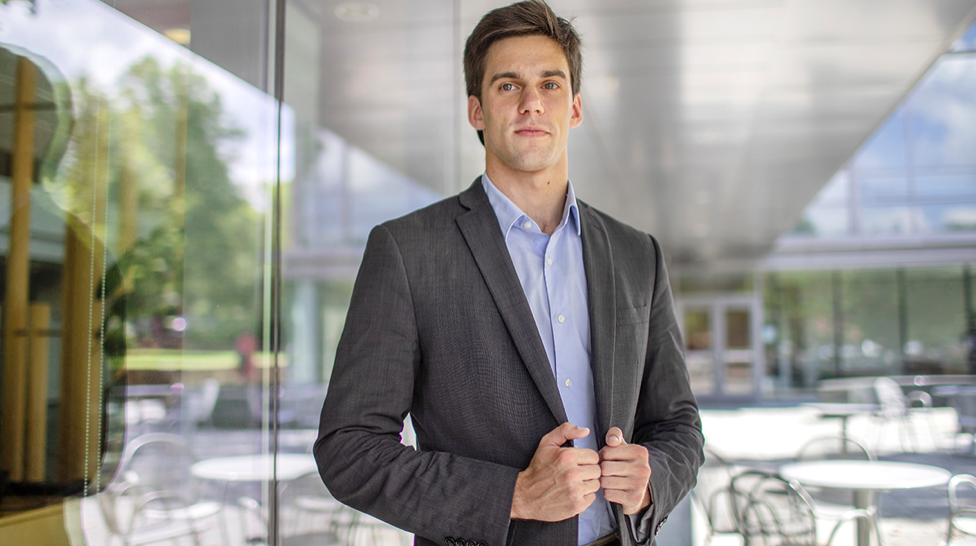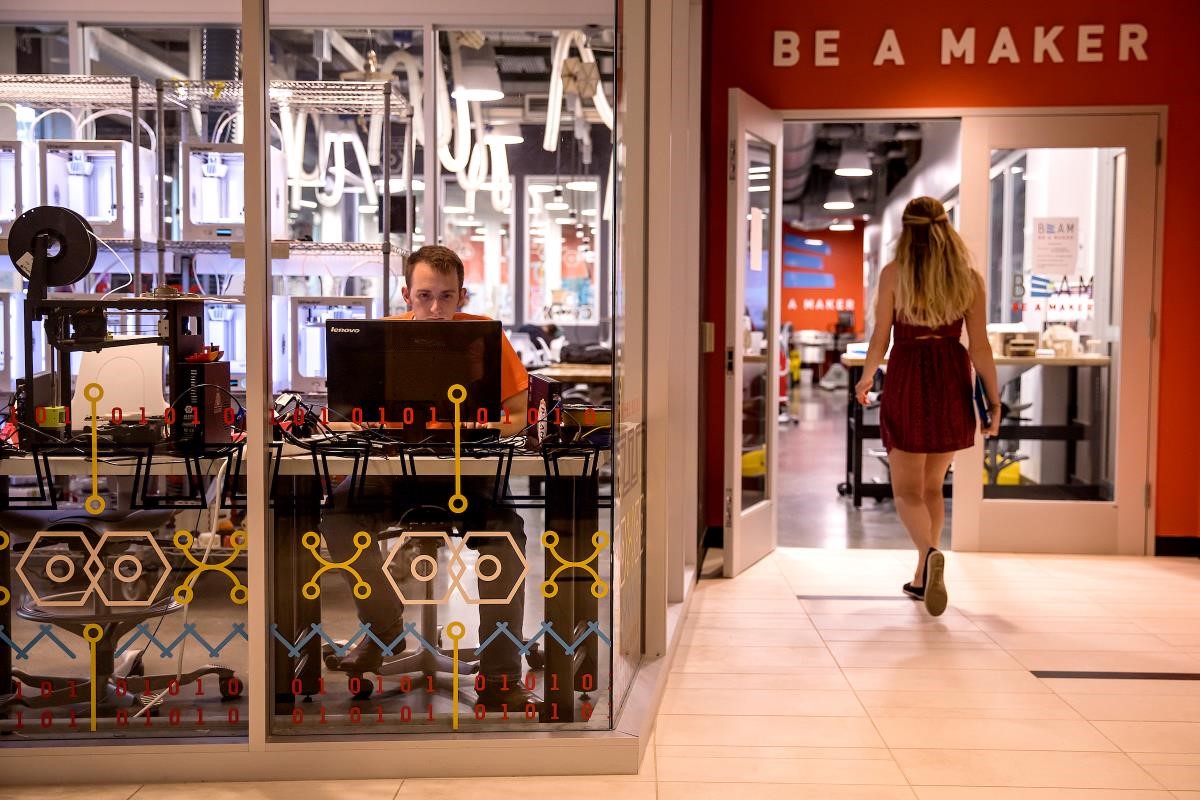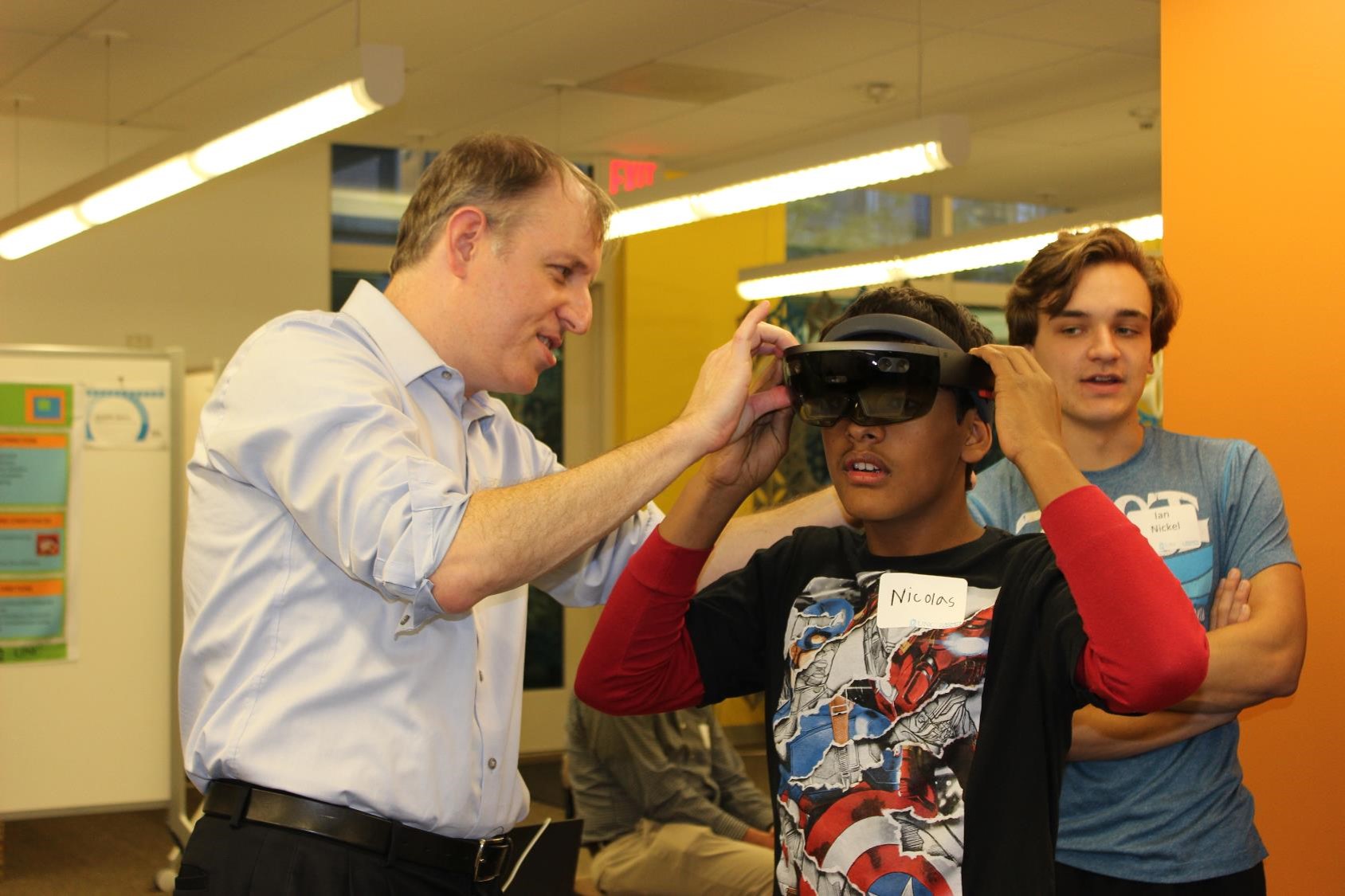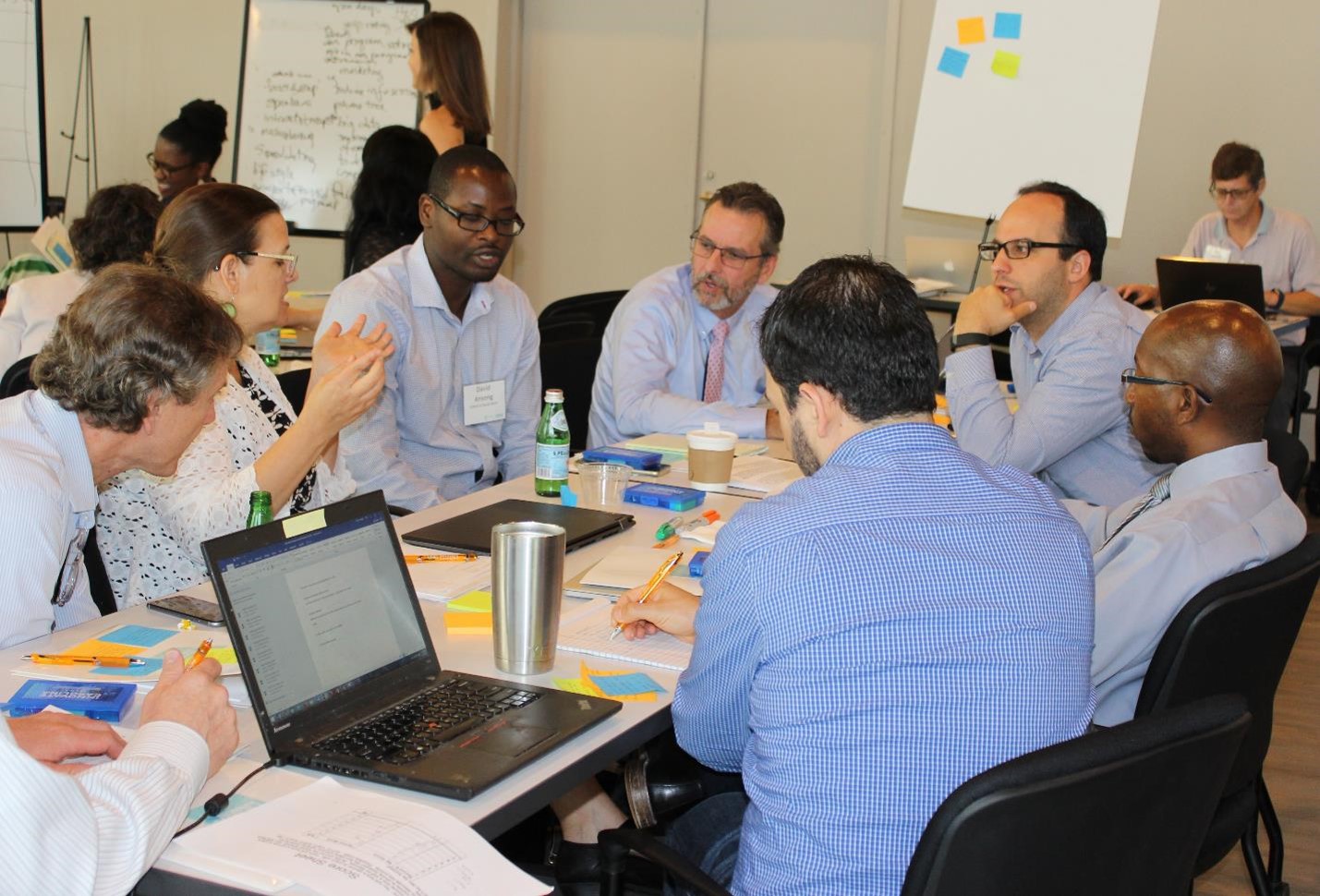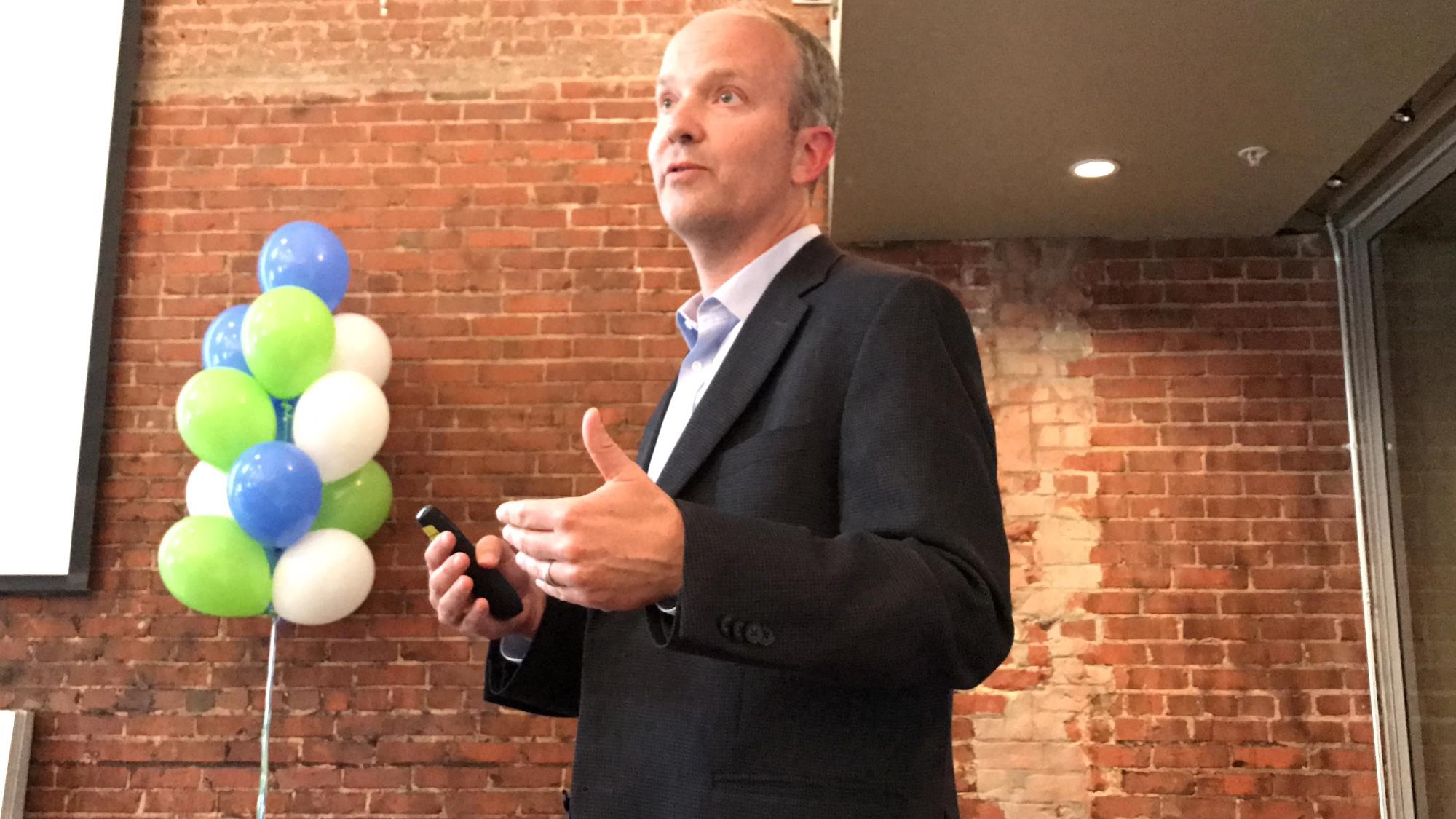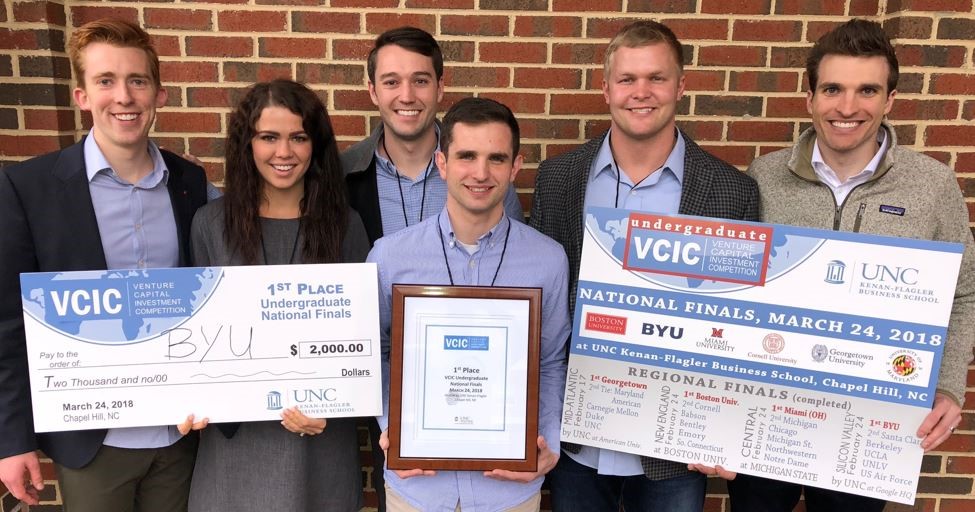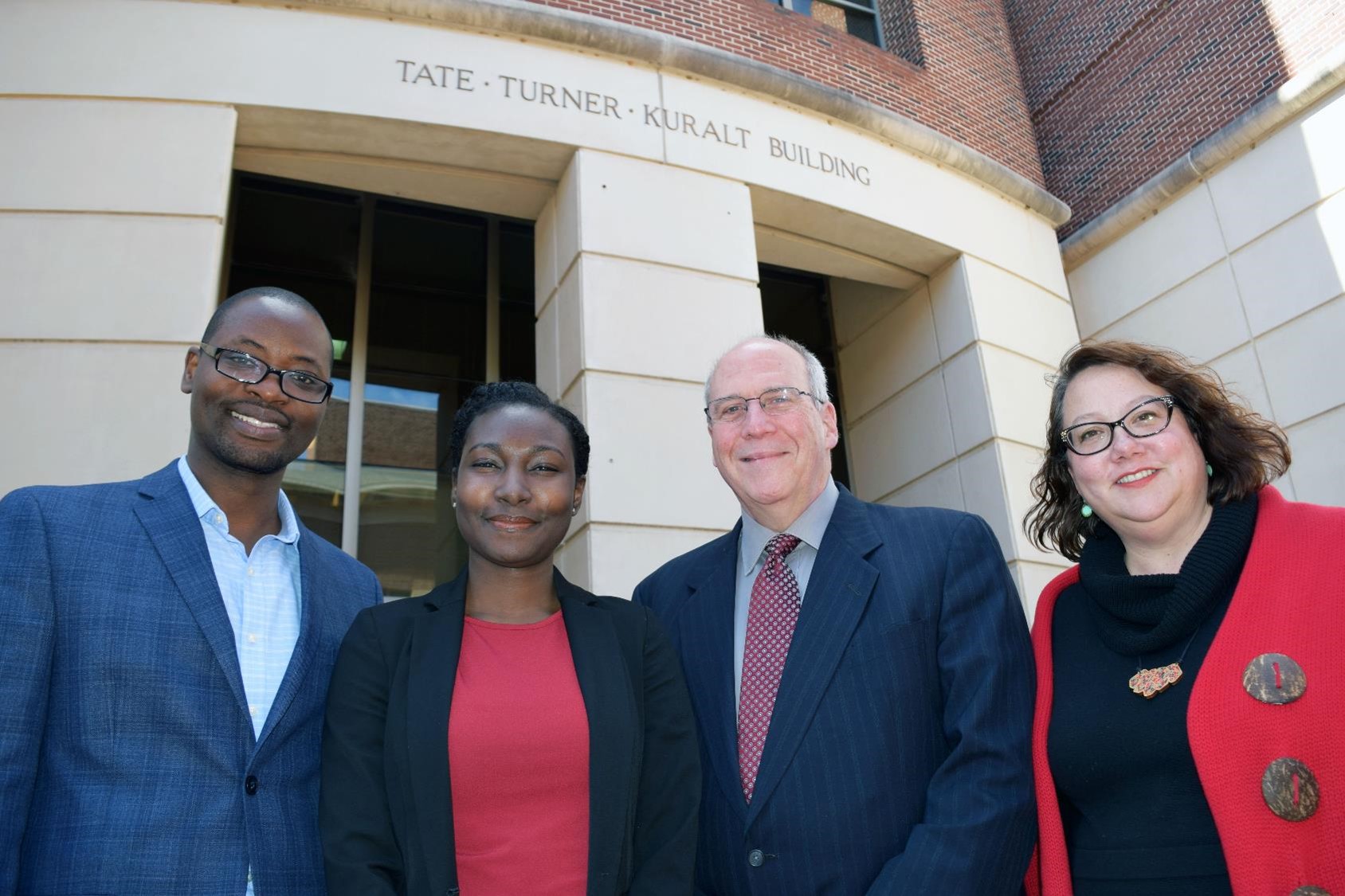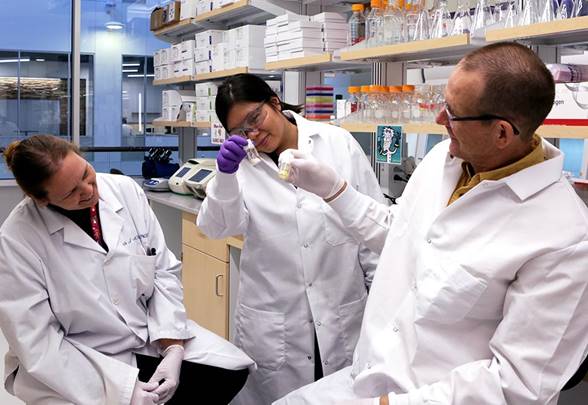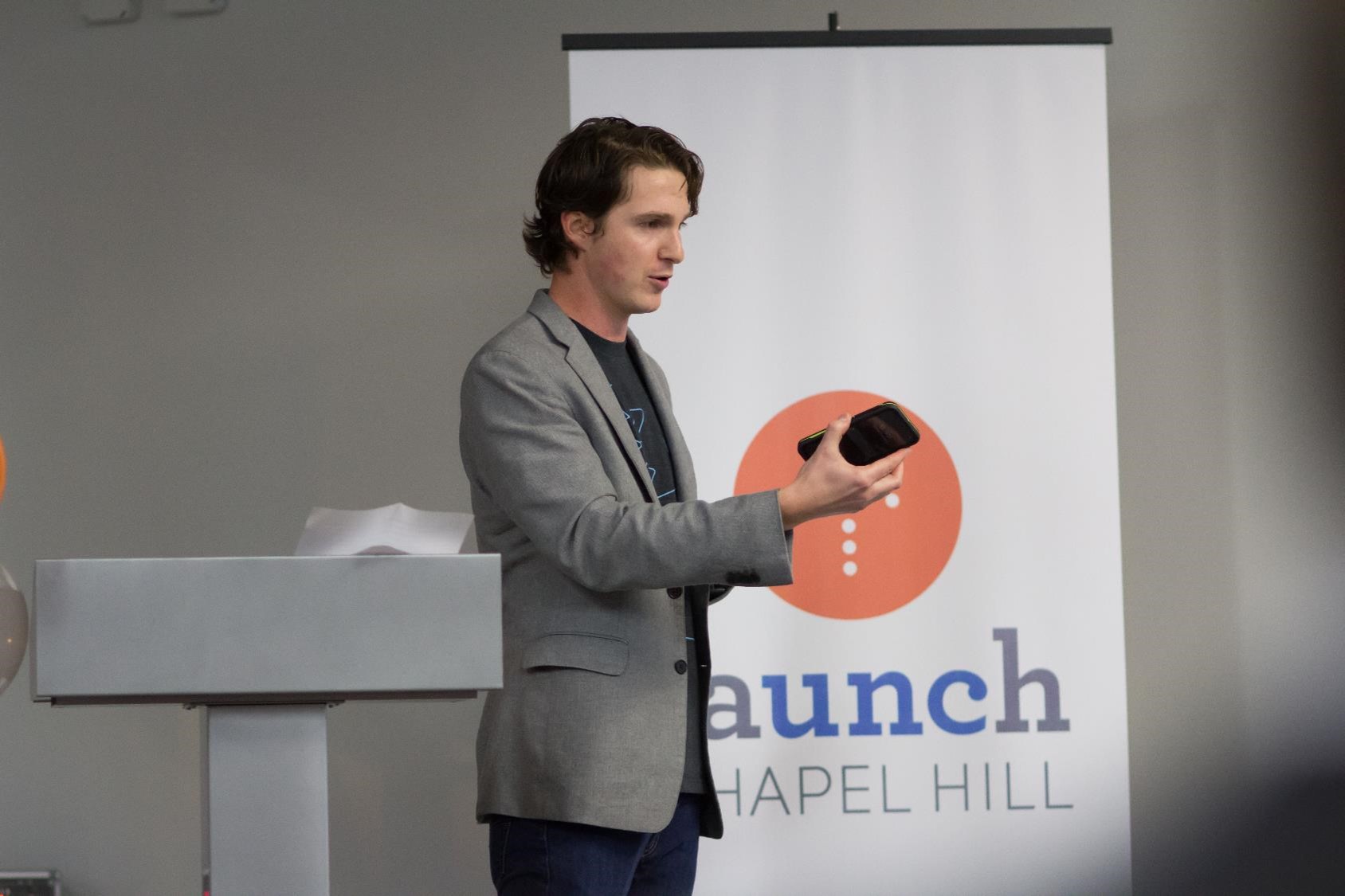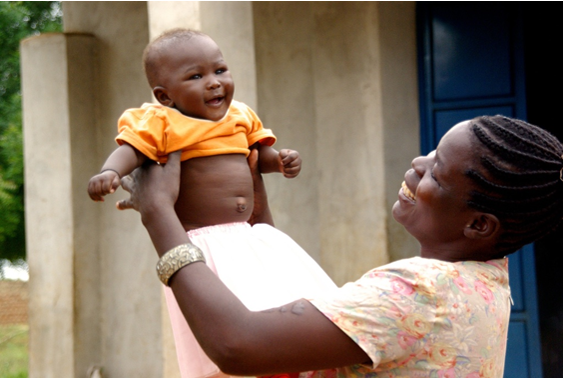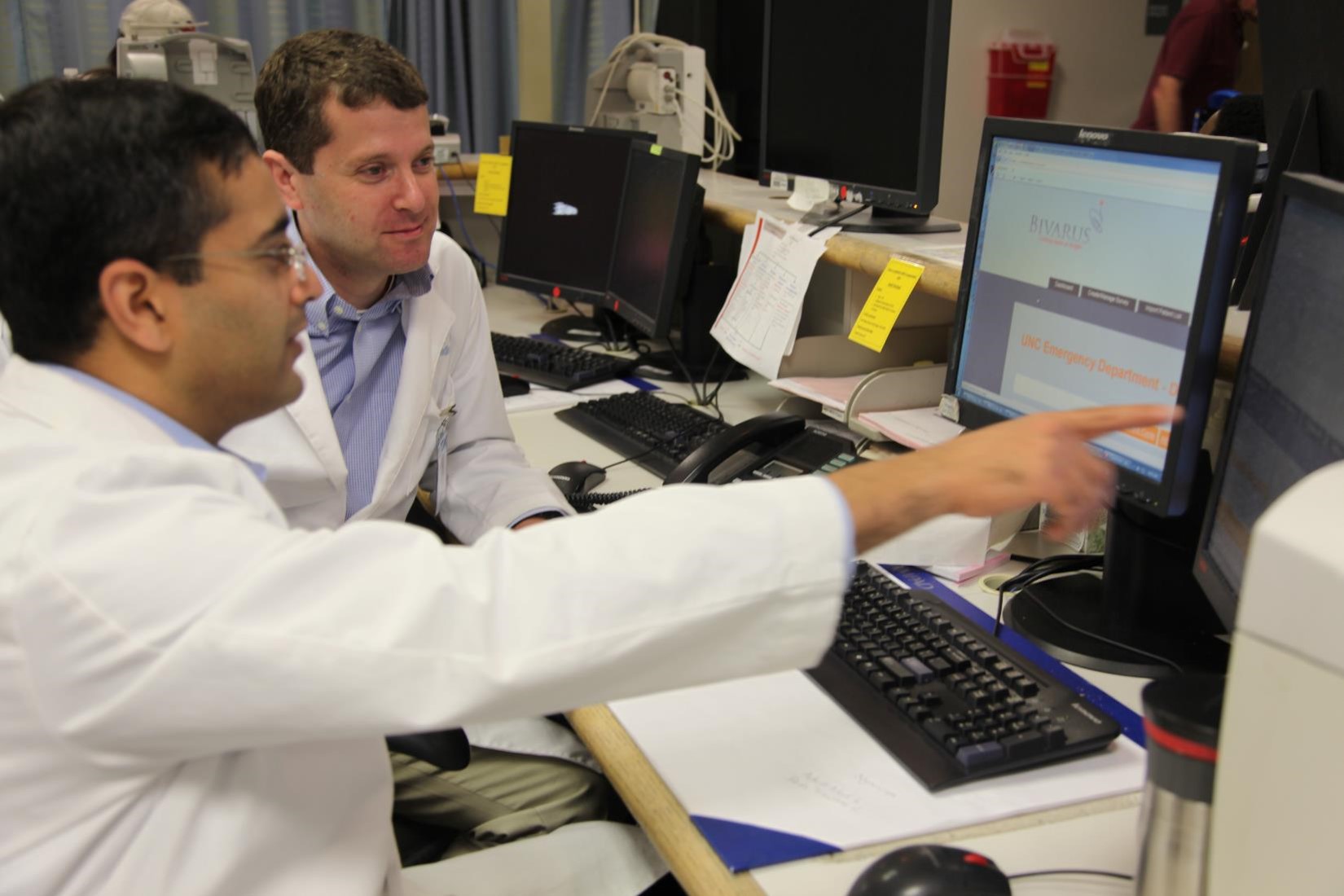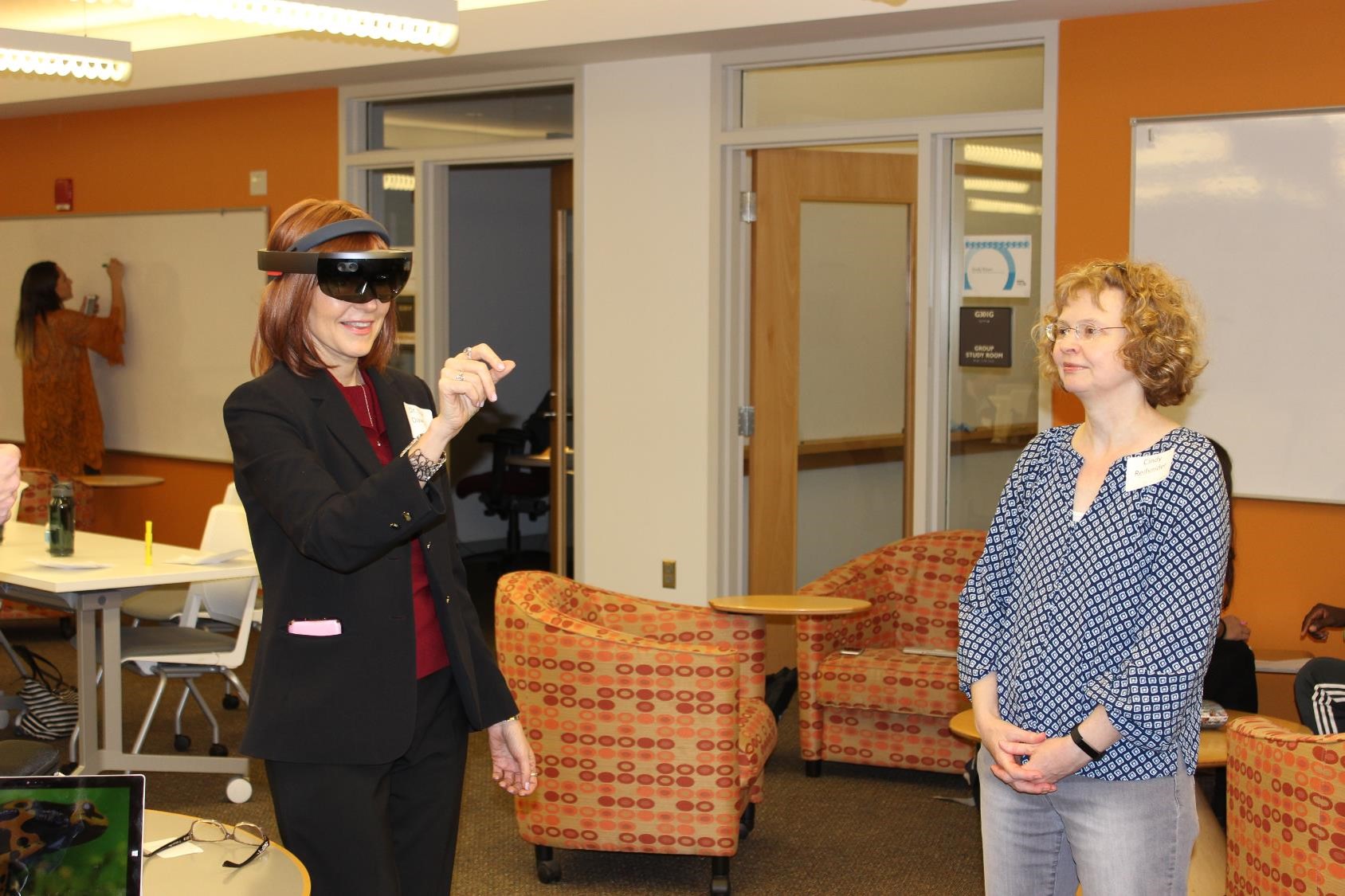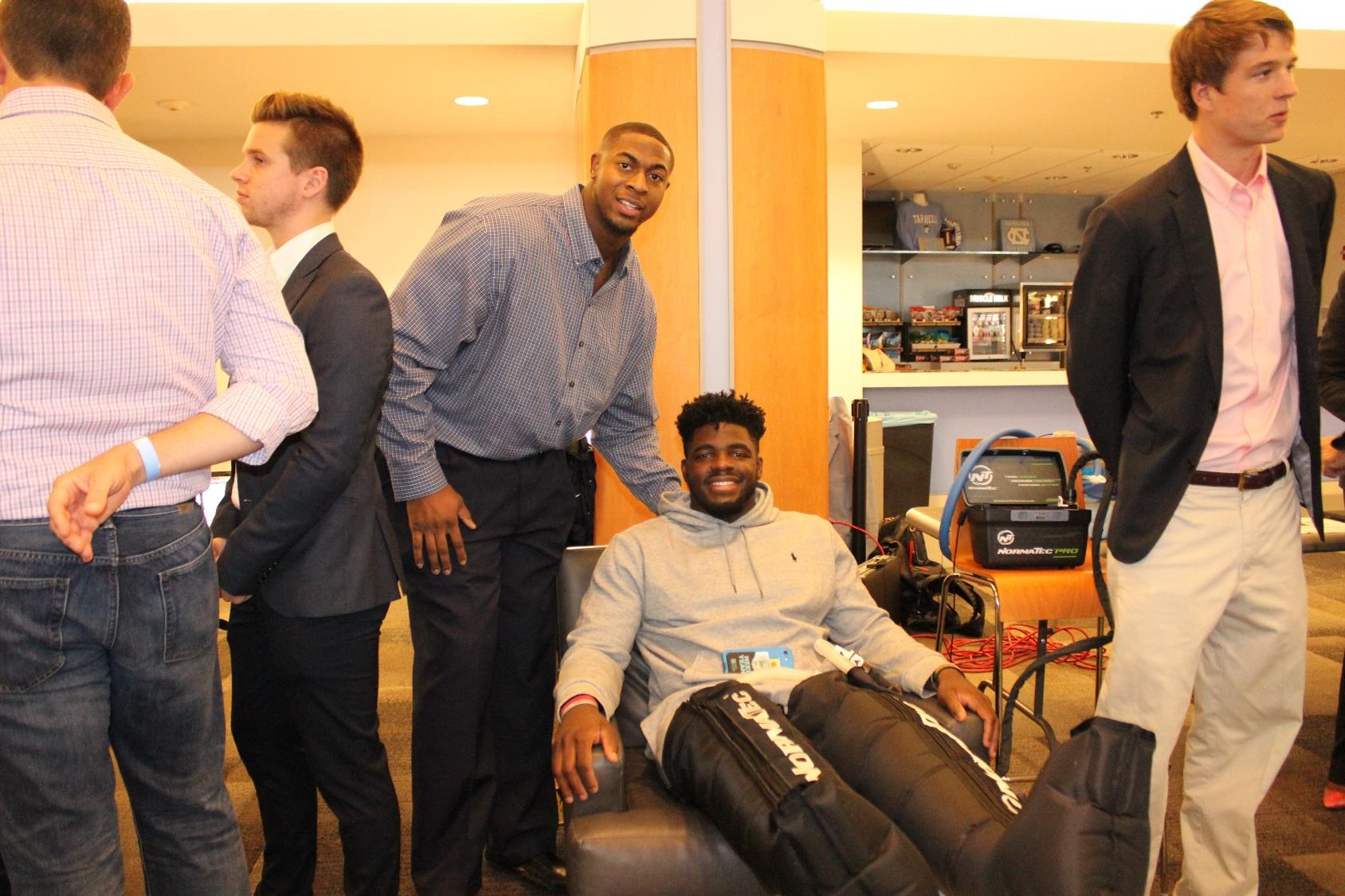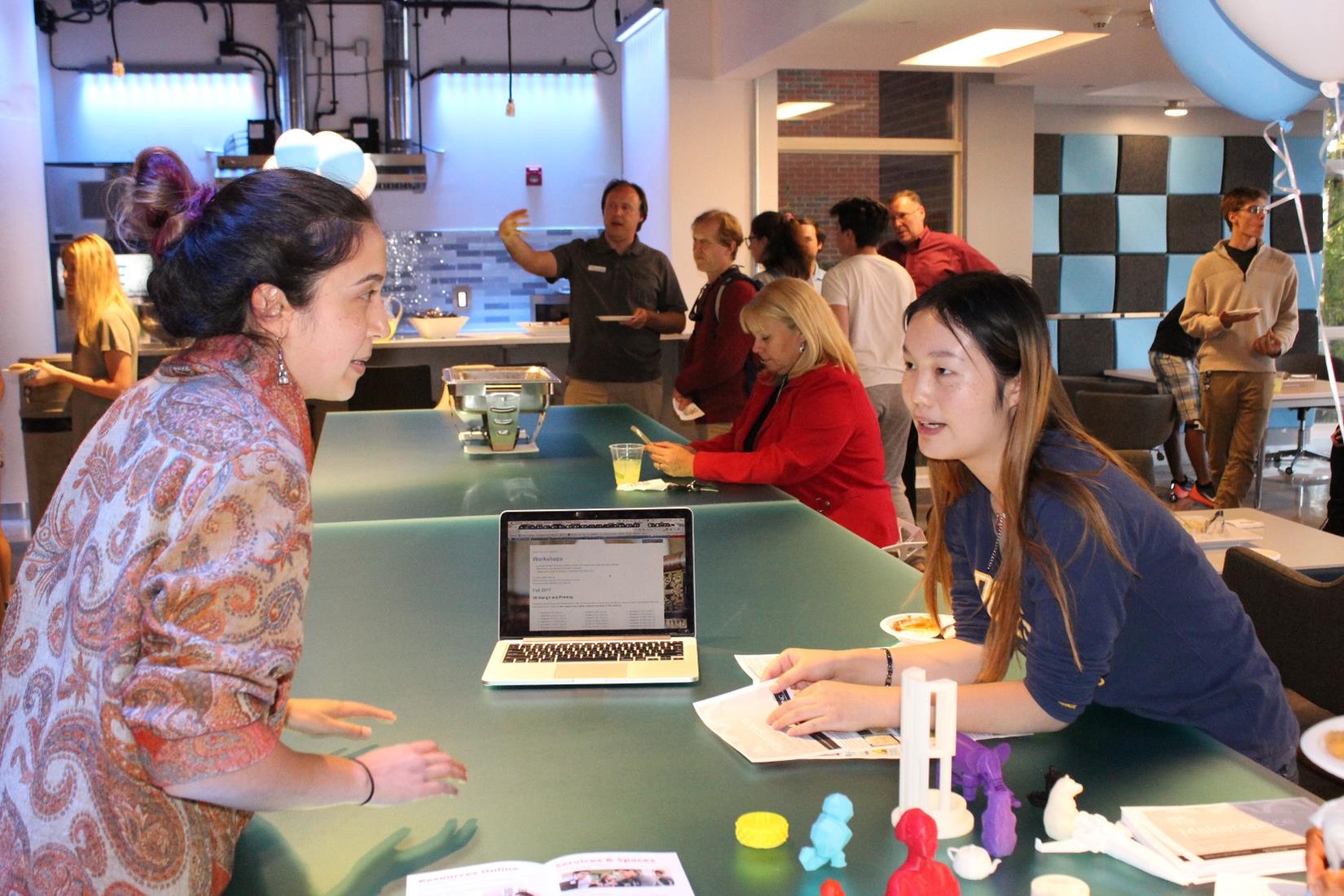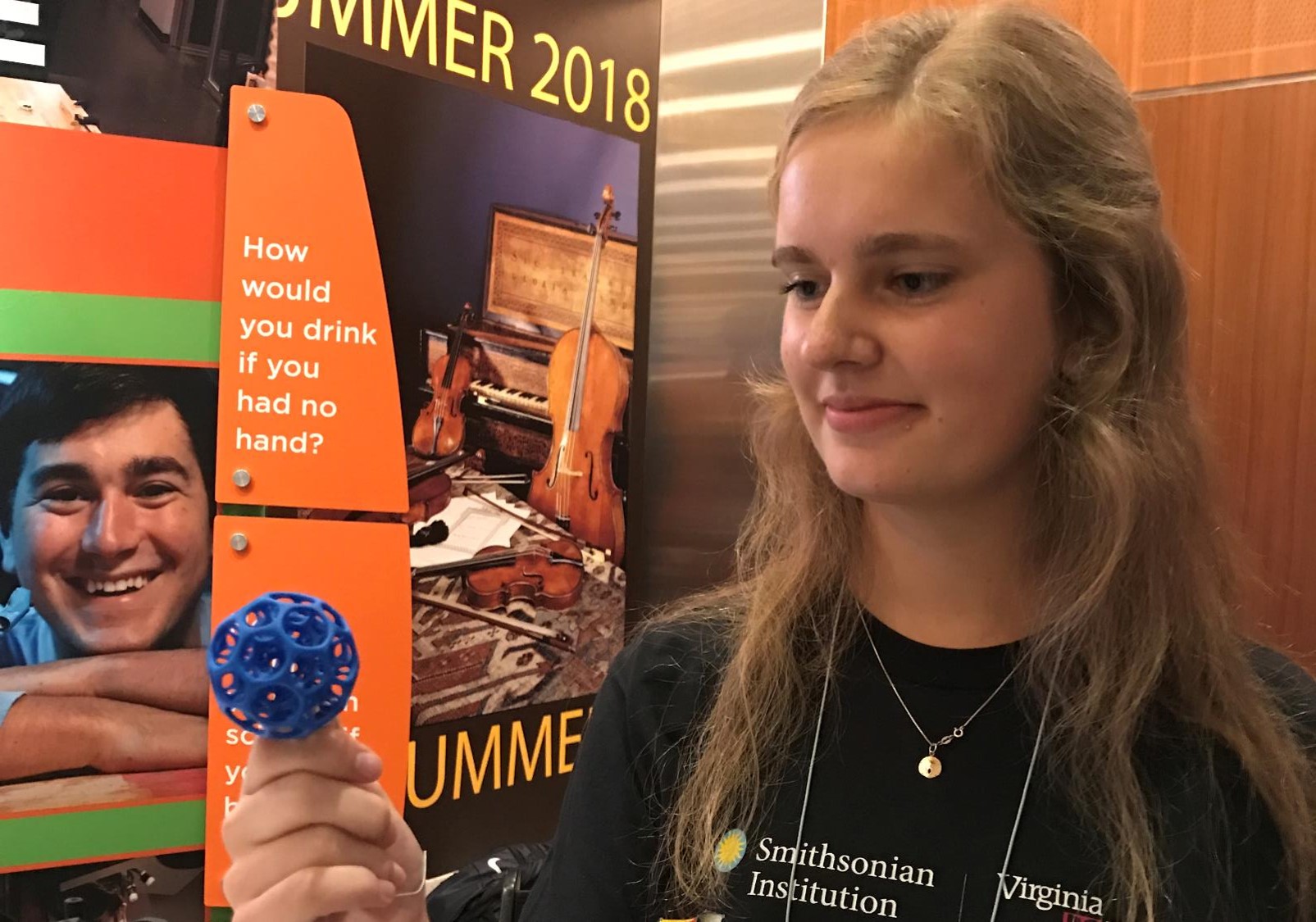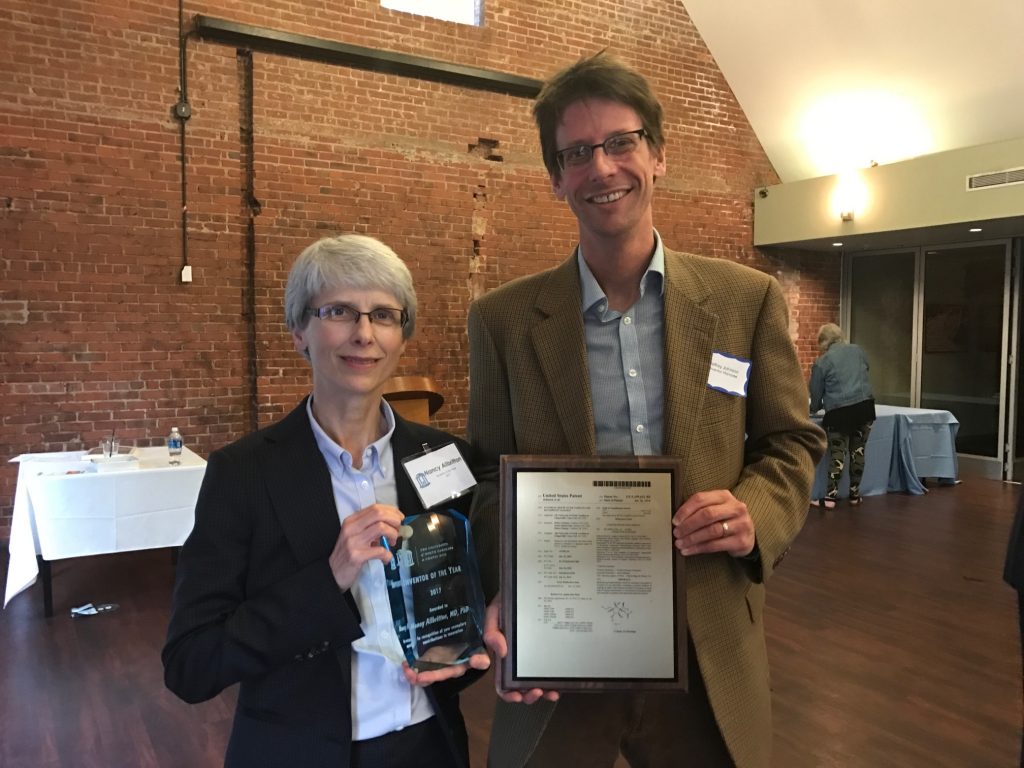When Innovate Carolina last caught up with Sha Chang, founder of social enterprise EmpowerRT and professor at the UNC School of Medicine, she was thrilled that her venture had just secured its first test site in Africa. Now, just two years later, EmpowerRT has wrapped its initial work at the Zambia Cancer Disease Hospital and is looking to bring its solution to cancer patients in other areas of the world. EmpowerRT improves cancer treatment in low-to-middle-income countries (LMICs) with a solution similar to modern treatment technology, but at less than 10 percent of the cost.
Like many other student opportunities, internships are being reimagined at UNC-Chapel Hill in the midst of COVID-19. With the pandemic disrupting and eliminating many traditional internship experiences this summer, the leaders of several of the innovation and entrepreneurship programs at the University teamed up this spring to launch a new type of internship program – one that could still provide students with quality, hands-on learning opportunities, while allowing for collaboration in a virtual environment.
As the coronavirus pandemic ramped up, Hubbard didn’t visit the biomedical engineering lab to use the printers. He was there to take three of them home with him. His foresight paid off. Just a couple of weeks later when University labs were closed, he was using those same printers to create a physical prototype of a device that may protect doctors and nurses as they care for COVID-19 patients. From developing face masks to vaccines, ventilators and diagnostics, a joint department at UNC-Chapel Hill and NC State fights COVID-19 by blending the best of medicine, engineering, teaching and more.
Startup company EternaTear received a Carolina Angel Network investment for its artificial tear that remains on the eye two-to-four times longer than currently marketed products. Affecting more than 320 million people globally each year and nearly 15 percent of the U.S. population with a market over $2B, dry eye can severely impact quality of life. Current treatment options are limited, and most patients rely on over-the-counter (OTC) eye drops for temporary relief.
A growing number of startups in the Research Triangle area of North Carolina are finding that one of their best new resources isn’t new at all – it’s one with a decade-long proven track record of helping startups navigate tough entrepreneurial times. Innovate Carolina has activated an existing group of entrepreneurs-in-residence, who originally banded together as part of the Blackstone Entrepreneurs Network formed in 2011, to focus directly on helping companies push through pandemic-related business problems.
A team of graduate students is from the UNC Gillings School of Global Public Health won UNC-Chapel Hill’s first Map the System Competition, which held its campus finale in early May 2020. A global competition organized by Oxford University’s Said Business School, Map the System challenges students to use systems thinking to understand complex social or environmental challenges.
At UNC-Chapel Hill, BeAM’s four on-campus makerspaces typically offer students and faculty a way to design and make physical objects for education, research, entrepreneurship and recreation. That focus shifted at the advent of the coronavirus crisis, when the BeAM group quickly moved into mass-production mode, immediately activating its own resources – and its relationships with other makerspaces across the state – to work faster and more effectively to create personal protective equipment (PPE) for health care workers.
Ask any UNC-Chapel Hill graduate student to describe their educational experience, and there’s a good chance you’ll hear them mention something associated with the words “depth” or “expertise.” In-depth knowledge. Exhaustive research. Specialized skill development. Yet, the ones who aim to help solve some of the world’s most critical social and scientific challenges, quickly find clarity on what it takes to make an impact: The problems they want to address feel too big for any single solution. To help graduate students learn to work effectively across disciplines to solve complex problems, the University of North Carolina at Chapel Hill is launching the Carolina Graduate Certificate in Innovation for the Public Good (CIPG).
Biomedical engineering student Kathlyne Bautista always knew that her coursework and training would set her on a path to make a life-changing difference for people. But before the coronavirus pandemic, she didn’t realize just how soon that opportunity would arrive.
Bautista is part of the Carolina Respiratory Emergency – Ventilator (CaRE-Vent) team led by Yueh Lee, MD, PhD, an associate professor at the University of North Carolina at Chapel Hill. His research team is sprinting to design and prototype an open-source ventilator in a matter of weeks that has the potential to help fill a critical equipment gap caused by a projected spike in COVID-19 patients.
COVID-19 response efforts at UNC-Chapel Hill and NC State University have turned a dedicated group of applied physical science and engineering professors into the closest of collaborators – and yet, they’ve never met in person.
Professors Rich Superfine and Glenn Walters at UNC-Chapel Hill and their faculty colleague Landon Grace at NC State recently connected based on their shared commitment to create personal protective equipment (PPE) desperately needed by hospitals and health care workers during the COVID-19 crisis.
If you routinely walk between UNC-Chapel Hill’s Murray Hall makerspace and Kenan Science Library, you’re not easily surprised by what you see there. Carolina students and others often stroll through this area with any type of object you can imagine in tow – parts, projects or prototypes that they’ve crafted with the help of 3D printers, laser cutters or woodworking tools.
But this past Friday and Saturday, even those who visit this part of campus regularly would have stopped in their tracks for a double take at what was unfolding: volunteers set up at tables working hours at a time assembling face shields to help doctors and nurses who are treating COVID-19 patients.
To care for your child or for pandemic-stricken patients? It’s a choice that most health care professionals – or parents – never imagined they’d face. But due to an upsurge in COVID-19 cases and dwindling child care options, it’s an unsettling reality. When Liz Chen answered an early-March phone call from her UNC-Chapel Hill department chair, Kurt Ribisl, to discuss potential solutions, she wasn’t sure how she would help tackle this problem. She just knew that she was ready to get started.
COVID-19 is causing shortages in personal protective equipment for health care workers who are treating sick patients. UNC-Chapel Hill faculty, medical students and the BeAM makerspaces – along with universities and other industry partners across the state – have joined together with a singular focus: to protect the health care workers who protect us. Our goal is to make tens of thousands of medical face shields by the end of April, 2020. Together, we are working to contribute to the University community’s response to support those on the front line who are battling this global pandemic.
Together, a group of medical students and Carolina’s makerspaces — alongside experts from NC State and Duke University — are producing 40,000 face shields that can be used by health care workers on the frontlines of the pandemic. For several weeks, Rich Superfine and Glenn Walters of the applied physical sciences department in the College of Arts & Sciences had been working on a face shield design that could be quickly made. Working with Kenny Langley of the University’s Be A Maker Network, better known as BeAM, they honed their design and production process.
The transfer of materials needed for drug and testing development is a complex process. To get the materials needed to the Baric lab, The Office of Technology Commercialization worked to get a materials transfer in place. As the COVID-19 (coronavirus disease in 2019) pandemic continues to unfold, faculty from the University of North Carolina at Chapel Hill are on the front lines combatting the fast-moving virus. But with research and discovery happening at a rapid pace, how can these researchers and scientists share critical research materials fast enough to develop and test drug therapies for the virus as quickly as possible?
Maybe you’ve known you want to be an entrepreneur your entire life. Or maybe the whole concept of entrepreneurship is new, intriguing and slightly intimidating. How do you create an entrepreneurial learning path that works for you? Our three-part series “Entrepreneurship education for all” examines how Carolina students are taking advantage of courses, programs and hands-on learning opportunities from the Shuford Program in Entrepreneurship and Entrepreneurship Center at the Kenan-Flagler Business School. Discover how these programs work together to give students of all backgrounds the flexibility to shape their own experiences with entrepreneurship.
Search by the letter “E” in the UNC-Chapel Hill course catalogue, and you’ll find many of the departments you’d expect: English, Economics and Education, to name a few. What you won’t find is a departmental listing for “Entrepreneurship.” That might be surprising considering U.S. News and World Report consistently ranks UNC-Chapel Hill as having one of the top undergraduate entrepreneurship programs in the country. But dig a little deeper into Carolina’s course offerings, and you’ll understand that this isn’t an oversight or omission. It’s a strategic effort by the University to improve student learning by infusing entrepreneurship within numerous departments across campus.
Carolina senior Marianne Cruzat has always been wired to be an entrepreneur. In her first year at Carolina, she was already working on a startup, but wasn’t sure of the path she should take to gain additional experience and find resources. The Entrepreneurship Center and Shuford Program both provided clarity.
For Zac Gonzalez, a senior economics major who is earning a minor in entrepreneurship, his dual involvement in the Shuford Program and Entrepreneurship Center at the business school influenced his career path in ways he hadn’t imagined. As a first-year student at Carolina, he didn’t realize he’d take the path of an entrepreneur.
Launching a startup is all about growth – personal and professional. Startup founder Dezbee McDaniel saw how getting involved in the Shuford Program for Entrepreneurship and the business school’s Entrepreneurship Center helped him grow as a student and young entrepreneur – while also helping him continue to build his business today.
With more than 1.5 million people in the U.S. diagnosed with cancer in 2019 alone, Chad Pecot is determined to make a lasting impact on the lives of those going through treatment. An associate professor and associate director of translational thoracic oncology at UNC’s Lineberger Comprehensive Cancer Center, Pecot – a cancer survivor himself – understands what patients go through during treatment. In his case, he was cured through surgery and chemotherapy, but as an oncologist he knows all too well that not all cancer patients experience the same outcome. His journey led him to launch EnFuego Therapeutics, a company merging science and technology to create RNA interference (RNAi)-based drugs for treating cancer.
On a brisk Friday in February, a group of Carolina students file into their literature classroom prepared to log on and learn in a way that few students have. While they’re likely to have the same supplies on hand that they used in other classes earlier that day – pens, notebooks, tablets and laptops – there’s one type of tool that they only use here. And it comes with choices: blue or red Nintendo Switch controller? Or better yet, Nintendo Switch or PS4 console? The students’ chance to use video game technology to learn about storytelling comes thanks to Courtney Rivard, a UNC-Chapel Hill professor who’s innovating across the humanities with her launch of a gaming-centered classroom, the first of its kind at the University.
Last semester Innovate Carolina began following the innovation journey charted by Carpenter and Newman, two Gillings School of Global Public Health master’s students. At Gillings, they recognized the need to reinvent how public health communication can function for the public. From there, they enrolled in Kenan-Flagler Business School’s Startup UNC course during the fall 2019 semester with the mission of innovating health communications.
Imagine that you have an idea you think will make a huge social or economic impact. You want to run with it and start a venture – maybe a startup company or nonprofit organization. The only probably is this: you don’t have any funding to make your idea work. A new startup fund designed specifically for UNC-Chapel Hill students is making this funding-gap scenario faced by too many aspiring entrepreneurs a less common occurrence.
Reflecting on 2019, we can’t help but feel inspired by the many ways Carolina innovators moved the world forward. It’s impossible to count the many paths faculty, students and alumni traveled over the past 12 months toward human, economic and social progress.
You might be surprised to see a TV producer or a linguistic researcher working in the public health field, let alone teaming up to build a company. But when Kathryn Carpenter and Emily Newman met as masters students at the Gillings School of Global Public Health, they realized they would make the perfect team in the course offered through the Kenan-Flagler Business School called Startup UNC.
Getting a stuffy head or nose is as common as the common cold. But what the average person sees as a run-of-the-mill annoyance or part of being sick UNCChapel Hill associate professor Sam Lai envisions as a breakthrough opportunity to keep people healthier. Lai and his team at the UNC Eshelman School of Pharmacy discovered that when pathogens — viruses, bacterium or other microorganisms — can be trapped in mucus, they can be rapidly eliminated, blocking infections. That led him to found Mucommune — a startup company that harnesses antibody mucin interactions to support women’s reproductive health — and Inhalon, a company that uses the same technology to prevent respiratory infections.
What gives a college student the confidence to greet hundreds of strangers and pitch the idea of making leather out of mushrooms? Or to explain why musicians should use artificial intelligence to write better songs? Or how a cold storage device they invented will help farmers in India double their income? The only thing more impressive than the multitude of bold student ideas on display at the Carolina Challenge Pitch Party last week was the gumption the students showed in pitching them.
One of the most exciting developments in solar energy is taking place at the University of North Carolina at Chapel Hill, where Jinsong Huang and his research group are tapping into cross-disciplinary research to develop an innovation that promises to usher in a new era in affordable renewable energy. Huang, a professor in the applied physical sciences department, leads a research team that includes experts from multiple fields to pioneer a novel method for stabilizing perovskite solar cells.
When Michael Heggie arrived at Carolina as a transfer student, he had his sights set on law school. To get his feet wet in the field, he launched a defense firm to represent students appearing in front of the University’s student-led honor code. After representing several students in the first year, he realized law might not be his passion. Building something from the ground up and watching it succeed was. To learn the ropes of entrepreneurship and get this company off the ground, Heggie turned to 1789, Carolina’s central hub of student innovation.
Rahima Benhabbour has always been an advocate for women’s health issues. As an assistant professor in the UNC/NC State Joint Department of Biomedical Engineering and an adjunct professor at the UNC Eshelman School of Pharmacy, her passion is to develop innovative technologies that prevent HIV infections and other health conditions in women. As fate would have it, watching a TED talk featuring global 3D printing company Carbon was the inspiration she needed to jumpstart her innovative idea.
Theo Dingemans, principal investigator for the Sustainable Access to Clean Water Creativity Hub and professor of applied physical sciences, along with a team of faculty and researchers from UNC-Chapel Hill and the University of Texas at Austin, is developing an innovative, affordable membrane-based water purification tool. The team is designing the new technology to safely remove a broad range of water contaminants.
Carolina has a reputation for being highly multi-disciplinary and collaborative. Yet it can be challenging for researchers and faculty to connect with one another on their ideas. It’s not always easy to get a sense of the world-changing potential of their work and understand tools and resources that can help make ideas real. The 11th annual Chancellor’s Faculty Entrepreneurship Workshop brought together many of Carolina’s most enterprising faculty for a deep dive on how to transform ideas into action through design thinking.
When patients leave the hospital, they hope they’re on the road to recovery. For too many, however, that road becomes winding and bumpy, detoured by a gap in care that exacerbates their illnesses or leads to other compounding health issues. And, before long, patients find themselves back in the hospital rather than at home. Mark Toles, an assistant professor in the UNC School of Nursing, had an idea that could help solve this problem.
Three years. 56 student projects. A $100,000 gift. And countless lives improved. All made possible by a donor who’s passionate about student education and philanthropic opportunities that have a social impact. The Dreamers-Who-Do program, open to all University of North Carolina at Chapel Hill students with an innovative idea, offers an opportunity to put those ideas into action.
As a patient in an emergency situation, the last thing you want to worry about is if doctors, nurses, clinicians and EMTs have the tools available to provide the best possible care. Time is of the essence, especially when it comes to major challenges such as sepsis, trauma and shock. One UNC-affiliated startup company working to improve patient care and lessen the burden on health care providers is 410 Medical. Through its unique product LifeFlow, the company is working to improve the care of the sickest patients, including those with shock and sepsis, saving lives and significantly reducing hospital expenses.
The communities in which we live are vital contributors to how daily habits and behaviors are formed. Where we live, work, learn and play can have a profound impact on our health. And in many communities, the corner store is a mainstay – a place where local residents gather. But often, corner stores do not offer the healthiest choices. Counter Tools, a social venture launched by public health faculty at the University of North Carolina at Chapel Hill, is looking to change the trend.
Twenty years ago, Kim L. R. Brouwer was a young clinician scientist in Carolina’s School of Pharmacy focused on making a difference in patients’ lives. Brouwer’s particular interest was the science of drug transporters, proteins that play key roles in the absorption, distribution and excretion of many medications. In response to this challenge, Brouwer co-invented B-CLEAR® (U.S. Patent No. 6,780,580), which promised the possibility of a reliable method to measure and predict how drugs are handled by the liver to help ensure that they are safe for use before they go to clinical trials and the market.
Twenty years ago, Kim L. R. Brouwer was a young clinician scientist in Carolina’s School of Pharmacy focused on making a difference in patients’ lives. Brouwer’s particular interest was the science of drug transporters, proteins that play key roles in the absorption, distribution and excretion of many medications. In response to this challenge, Brouwer co-invented B-CLEAR® (U.S. Patent No. 6,780,580), which promised the possibility of a reliable method to measure and predict how drugs are handled by the liver to help ensure that they are safe for use before they go to clinical trials and the market.
If you spend much time hanging around the makerspace in UNC-Chapel Hill’s Murray Hall, you’ll notice that the most productive makers have a common skill – and it’s not one that necessarily involves any particular hammer, saw or wrench. Instead, it’s a knack for tinkering – looking at a project and asking, “What if?” It’s that same turn-now-into-next spirit that led leaders of the Be A Maker (BeAM) community and Innovate Carolina to reimagine an existing nook in the makerspace and transform it something entirely new – the BeAM Learning & Innovation Studio.
The Women’s Innovation Council bridges universities in the Triangle to elevate young female innovators and enhance campus programming. Launched in fall 2018 by Sheryl Waddell, director of the Innovate Carolina Global Network, the council is a partnership between UNC-Chapel Hill and NC State University. Both universities nominate five female students to join the council, explore opportunities to advance women in entrepreneurship on their own campuses, and convene to share best practices.
A nook at the edge of lake where the light from the sunrise strikes the water perfectly. The fallen tree trunk, slightly tucked away from the path, which doubles as an ideal bench for a picnic. Or a hole-in-the wall restaurant whose kitchen sends out culinary delights that far surpass exterior expectations. Finding these kinds of hidden spots recommended by friends via mapping technology is the idea that drives the app and startup company SP0T. Yet, on the evening of Thursday, April 11, UNC-Chapel Hill students and company founders Kenny Barone and Tyler Trocinski found themselves in a location that was anywhere but hidden.
For the more than 70 million women in today’s workforce, finding the right job with the best work environment can be crucial but also overwhelming. Whether women are looking for career growth, family-friendly policies or just a change in employer, one startup company connected to UNC-Chapel Hill offers a technology platform that measures company support for women – helping them to apply for jobs at companies that best match their needs. InHerSight fosters better workplaces for women by using data to help women find and improve companies where they can achieve their goals.
Big presentation? Recital? First date? Championship game? Whether it’s nerves or stress, any of these circumstances would give many people sweaty hands, underarms or feet – likely leading to an embarrassing situation. Known as hyperhidrosis, the condition can be distressing and potentially affect lifestyles. Enter Carpe, a company that’s producing the world’s first non-greasy, no-residue antiperspirant lotion.
Over the past few years, 908 Devices has quietly advanced from a startup to a nearly 100-employee company – making an impact through its work in chemical and biomolecular analysis. With roots at the University of North Carolina at Chapel Hill, the company is a pioneer of purpose-built analytical devices for chemical and biomolecular analysis.
On a visit to anywhere else, hearing someone explain that a secret for stopping global warming is feeding cows more seaweed might elicit a bewildered head scratch. And, under normal circumstances, you’d have the same quizzical reaction if someone told you that one of our best bets for keeping local communities safe is combining the power of advanced computer models and…oysters. Yet, over three days at the Smithsonian National Museum of American History, such conversations are the norm. This is where six student and faculty teams will represent the UNC-Chapel Hill at the ACCelerate Smithsonian Creativity and Innovation Festival.
When Radhika Kattula was in high school, she focused on how to bring others around to her way of thinking. Pressing her point of view. Debating points on their merit. And persuading others toward her perspective. Now, as a freshman at UNC-Chapel Hill, she’s identified another way to ensure that important ideas find favor among an even broader audience. Kattula’s personal evolution from debater to someone who now sees how an event can be a conduit of ideas captures the essence of the 2019 TEDxUNC event theme of “Flow.”
On a chilly Sunday evening when most students were wrapped up in run-of-the-mill weekend routines, Ben Morgan stood in the Kenan Science Library talking about an idea that was anything but ordinary – something that could simultaneously excite environmental advocates and closet neat freaks. “We’re working on making a compostable shoe,” said Morgan, a doctoral student in polymer chemistry, who explained that old shoes typically aren’t donated to second-hand stores and are major culprits for cluttering closets before they stack up in landfills. “Our idea is that if you’re going to wear your shoes into the ground, turn them into dirt when you’re done with them.”
Innovation and entrepreneurship at UNC-Chapel Hill in 2018 has included taking on critical challenges, making big breakthroughs and exploring endless possibilities. Innovate Carolina has followed the innovation journeys of faculty researchers, student entrepreneurs and innovative alumni as they’ve put their ideas into action on campus, across the state and around the world. Although it’s impossible to capture all the innovation happening at UNC in one list, check out this top ten (plus two!) list of innovation and entrepreneurship stories from 2018. We hope you’ll take away a little insight and inspiration to fuel your ideas in 2019.
What types of innovation spaces should UNC-Chapel Hill create to help students and faculty spark ideas and design solutions to real-world challenges? And what role should these spaces play in building and connecting local and regional communities? A group of university leaders gathered at the most recent Innovate Carolina Network Forum to explore these questions through the lens of Campus 2.0 – the concept of campuses as community builders. Conversations focused on the intersection of higher education, innovation, work and physical spaces.
A new cold-storage device that extends the viability of produce harvested in developing countries. An e-commerce, Amazon-style site for planning more affordable weddings. A venture that allows people to buy and sell internet connectivity from one another. The annual Carolina Challenge Pitch Party brimmed with these kinds of inventive ideas from 81 student venture teams. Their goal: Convince judges to give them the most poker chips and win award funding to move their ideas forward.
How can universities prepare students for the future economy when we’re not certain what that economy will look like? While there’s no text-book answer or crystal-ball solution, a group of workforce, entrepreneurial and educational experts convened at the latest Innovate Carolina Network Forum to offer well-studied insights on what lies ahead for today’s students turned tomorrow’s professionals.
Jeff DeBellis, director of economic policy and analysis at the North Carolina Department of Commerce shared research findings and recommendations, joining a panel of educational and business leaders to offer practical advice for faculty and staff who work with students.
With tens of thousands of students, faculty and staff immersed in what seems like limitless teaching, research and social engagement activities each day, it’s hard to fully grasp what takes place on a university campus. Even more difficult is understanding the social and economic effect of innovations sparked at a university once they extend beyond campus. Ideas move into communities. Discoveries reach the real world. And the lessons from class projects and internships translate into job-ready skills. We know that these activities all make a positive difference, but how do we demonstrate the impact?
One of the hardest lessons Nick Black learned through his service in the U.S. Army is that, too often, soldiers are lost to an adversary that doesn’t get nearly enough attention: suicide. Black’s experiences led him and two fellow servicemen to co-found Stop Soldier Suicide in 2010. They all knew soldiers who had faced daunting challenges and were determined to create a solution. With veterans at a 22 percent higher risk of suicide than their peers who have not served, the organization helps veterans and their families get help with suicide prevention.
Let’s say you’re a faculty member at a university in North Carolina, and you want to launch a startup. How can you get the early funding you need to be successful? What resources are available? And how do you identify and tap into the right resources at each step of your innovation journey as your venture grows? This three-part series examines the answers to these questions and more.
Let’s say you’re a faculty member at a university in North Carolina, and you want to launch a startup. How can you get the early funding you need to be successful? What resources are available? And how do you identify and tap into the right resources at each step of your innovation journey as your venture grows? This three-part series examines the answers to these questions and more.
Competing against five international teams for the Hult Prize — one of the most prestigious startup events in the world — the three Carolina students pitched their seaweed cultivation initiative called Phyta to world leaders at the United Nations headquarters.
The Social Innovation and Entrepreneurship (SIE) lab was launched via the Jordan Institute for Families at the UNC School of Social Work. This campus hub for innovation is exploring, promoting and nurturing inventive ways to solve complex social problems.
Local communities across the state continue to reap the economic benefits of startups launched by UNC-Chapel Hill faculty, students and staff, according to a biannual report that analyzes the economic impact of the University’s commercial and social ventures
Local communities across the state continue to reap the economic benefits of startups launched by UNC-Chapel Hill faculty, students and staff, according to a biannual report that analyzes the economic impact of the University’s commercial and social ventures.
After six years, 250 local companies mentored and more than $430 million in capital raised by these companies, a partnership Carolina made with three other Triangle universities and the Blackstone Charitable Foundation is about to enter a new phase.
When Joe Nail was an undergraduate student at Carolina, he made a list of the 25 most significant challenges facing the world in the 21st century, ranging from rising sea levels to a widespread distrust in government. He couldn’t solve them all. But he wasn’t content looking the other way.
When students take a course, they define success in any number of ways: good grades, learning new skills or expanding their knowledge, to name a few. You’ll find very few, however, who define success as experiencing failure. Yet, a new design and making course at UNC-Chapel Hill teaches students that to move forward, they must first endure a few steps backwards.
Most people you pass on the street have a general understanding of augmented reality/virtual reality (AR/VR). But a team of undergrads at the University of North Carolina at Chapel Hill, led by Brian Moynihan of the UNC Health Sciences Library, are not only creating a new way of thinking about these technologies, but exploring new possibilities for thinking with them.
Every spring, small groups of the most enterprising faculty at UNC-Chapel Hill experience flashbacks of sitting in class as undergraduates. While participants in the Chancellor’s Faculty Entrepreneurship Workshop, which is sponsored by Chancellor Carol Folt and led by Innovate Carolina, these researchers and teachers find themselves in the shoes of the students they instruct: showing up eager to learn, collaborating on group projects and working feverishly toward final presentations.
Mark Schoenfisch likes to quip that his favorite letters are “N” and “O.” That might seem like a surprising preference for a chemistry professor who teaches his students to explore new scientific possibilities and whose own entrepreneurial spirit leads him to develop life-improving inventions.
A unique competition created at UNC-Chapel Hill gives current students a unique learning opportunity and allows alumni to give back in an innovative way – through its Venture Capital Investment Competition (VCIC), which is the largest competition of its kind in the world.
A team of faculty at the University of North Carolina at Chapel Hill’s School of Social Work is working to ensure that more children who are removed from their birth homes due to child abuse or neglect can live with their relatives. By winning the 2017 C. Felix Harvey Award to Advance Institutional Priorities, these faculty innovators will receive $75,000 from the University to support their efforts.
When Edwina Koch stepped onto the field in Busch Stadium, she wasn’t planning to throw curve balls, sliders or any other kind of pitch meant to deceive. She wanted her delivery to be precise, well-timed and direct – straight down the middle. In fact, even though she stood preparing to compete in the stadium that’s home to Major League Baseball’s 11-time World Champion Saint Louis Cardinals, throwing a baseball was the last thing on her mind.
Today, the majority of drugs and pharmaceuticals on the market that treat human disease are designed to target a specific protein. But University of North Carolina at Chapel Hill startup Ribometrix has a very different, revolutionary approach to new drug discovery that’s proving to be a breakthrough in the industry.
What started as an entrepreneurial project in 2013 has evolved into an economic force, fulfilling a vision for nurturing new businesses in Chapel Hill and the local community. Over the past five years, Launch Chapel Hill has supported 75 startups and made a lasting impact on the region. And, along the way, it’s proved that Chapel Hill is an ideal place for startups to take root and grow.
An early-stage company at UNC-Chapel Hill is looking to address the global rise in cancer cases with its unique technology. EmpowerRT is a new, social enterprise startup with a mission to help people in developing countries by improving cancer radiation therapy without spending millions of dollars on modern treatment technology.
If you notice improvements in the care you receive during your next visit to the doctor, a technology developed by a company co-founded by UNC-Chapel Hill professor Seth Glickman may be the reason why. Bivarus, a company that developed a survey-based cloud analytics platform to gain insight into patient experiences, has been acquired by Press Ganey, a leading provider of patient experience measurement and performance analytics for healthcare organizations.
Ever seen a ballerina dance on a table? Or tried to climb Mount Everest inside a library? For those who attended UNC-Chapel Hill’s 2017 Global Entrepreneurship Week (GEW) event at Kenan Science Library, the answer is probably yes. These surreal experiences were made possible by augmented and virtual reality technologies, which were showcased at the event and are now available in several libraries across campus. The discussion panel and demo session were part of UNC-Chapel Hill’s participation in GEW, an annual international celebration of entrepreneurship that draws participation from creative thinkers and innovation enthusiasts from 170 countries.
William Sweet knows how to stop people in their tracks. It’s a skill that UNC-Chapel Hill football fans have witnessed the sophomore offensive tackle display on the field. But when visitors filed into Kenan Stadium’s Blue Zone one November night, they saw him do it a whole new way. For the evening, Sweet traded his regular block, grab and tackle moves for different maneuvers: eye contact, a warm smile, a firm handshake and a compelling business pitch.
When UNC-Chapel Hill students want to make a physical object for a class or research project, many quickly look for places around campus where they can go to get started: a design studio, lab or makerspace. But what if they didn’t have to go anywhere? What if Carolina brought a maker environment to students right where they live?
Where better to focus on innovation than the capital city of a country that is an innovation itself. That’s the pervasive spirit behind the ACCelerate Creativity and Innovation Festival in Washington, DC, where UNC faculty, students and staff gathered with the 14 other Atlantic Coast Conference universities to present 48 exhibits at the Smithsonian National Museum of American History.
If there’s one invention Dr. Nancy Allbritton is hiding from the world, it might be a new kind of clock that gives her more than 24 hours to work each day, while the rest of the world struggles to keep pace. How else does she get it all done? That’s at least what other UNC-Chapel Hill researchers and campus leaders might have been thinking as they gathered to honor Allbritton for her productive portfolio of work, translating lab-born university research ideas into a bevy of successful commercial ventures.

 | UNC-CH
| UNC-CH
